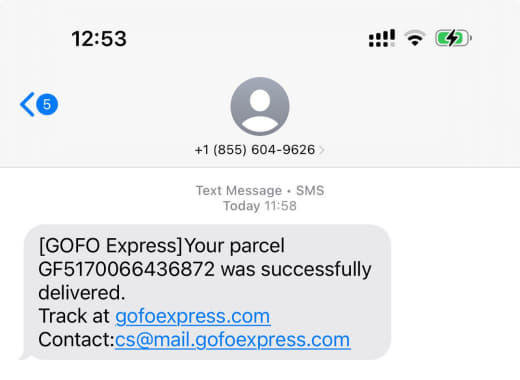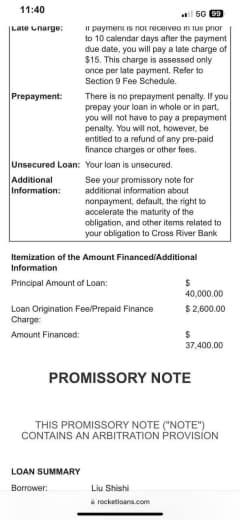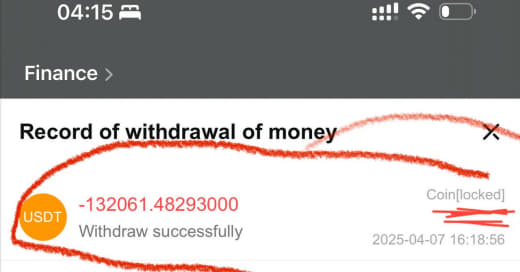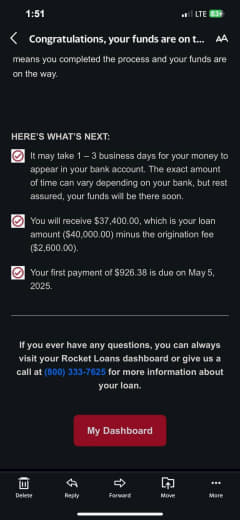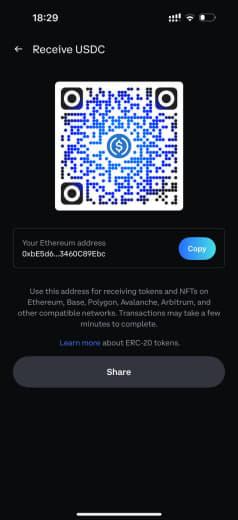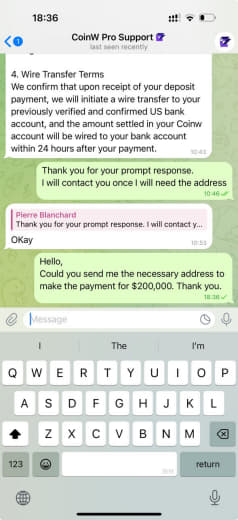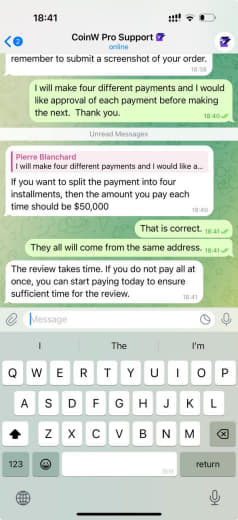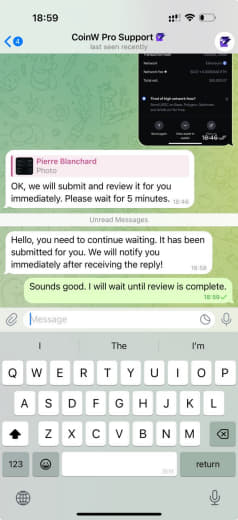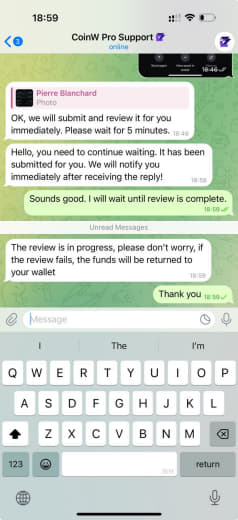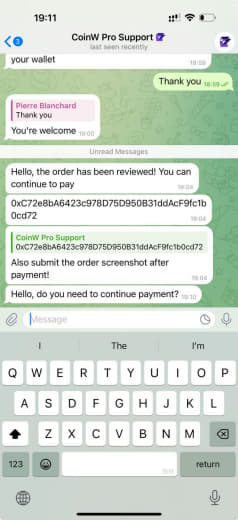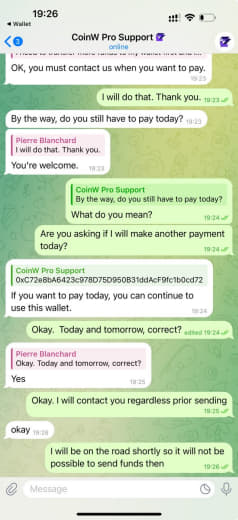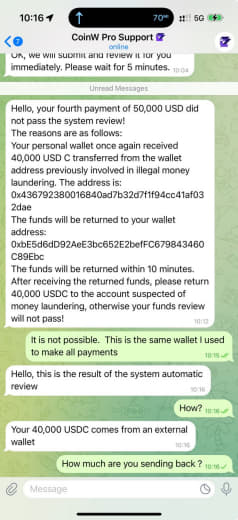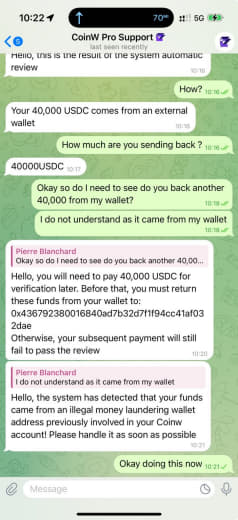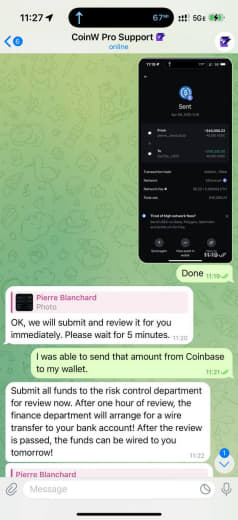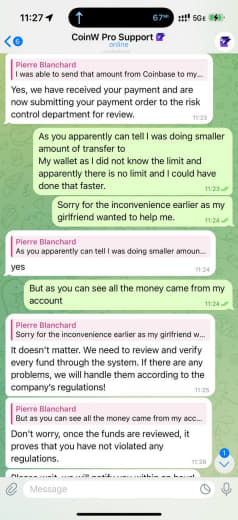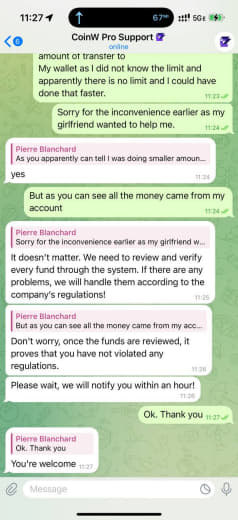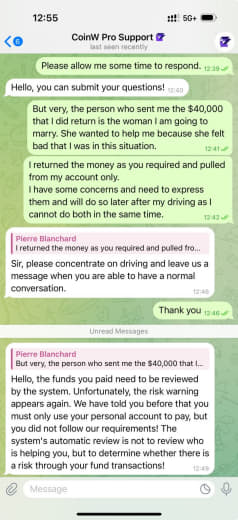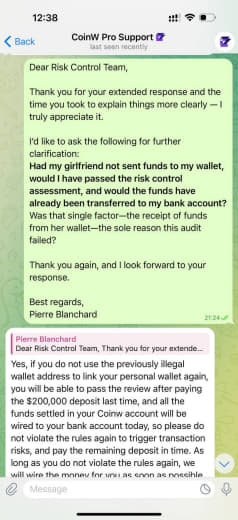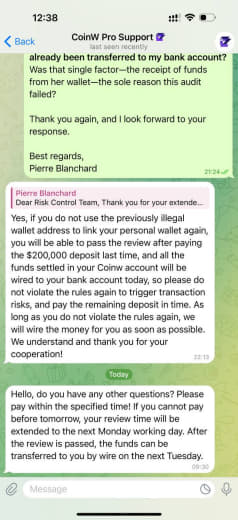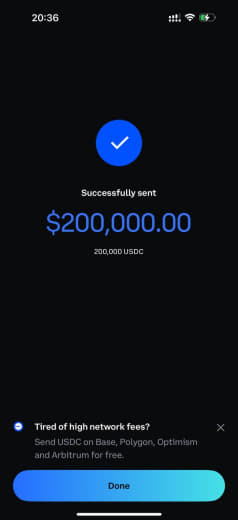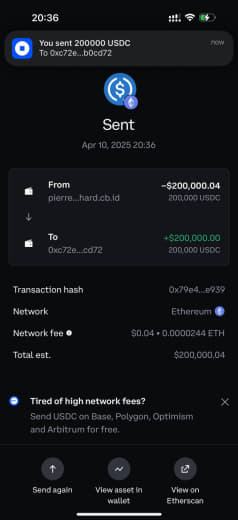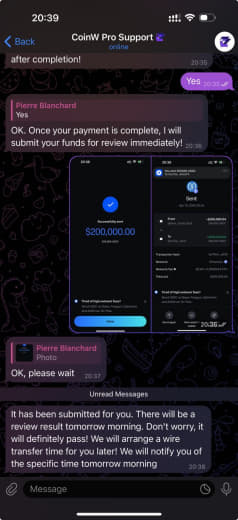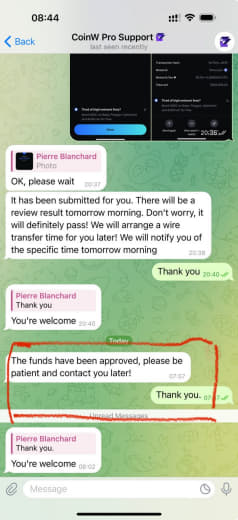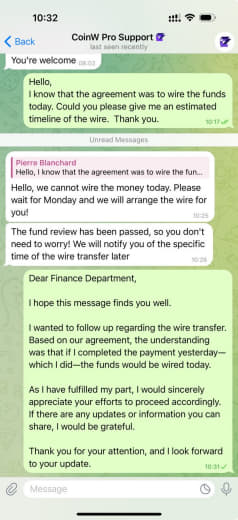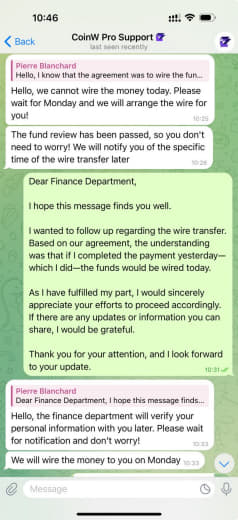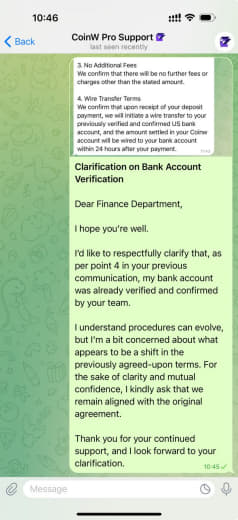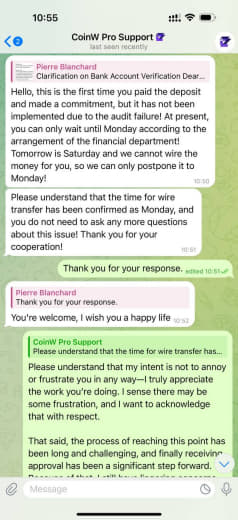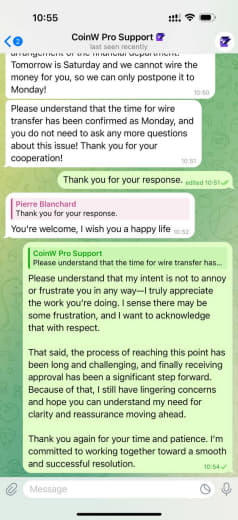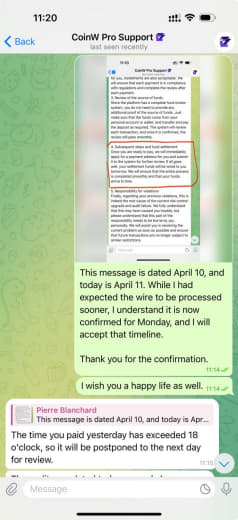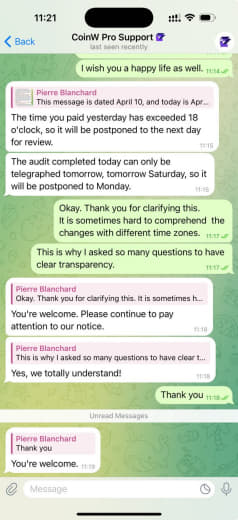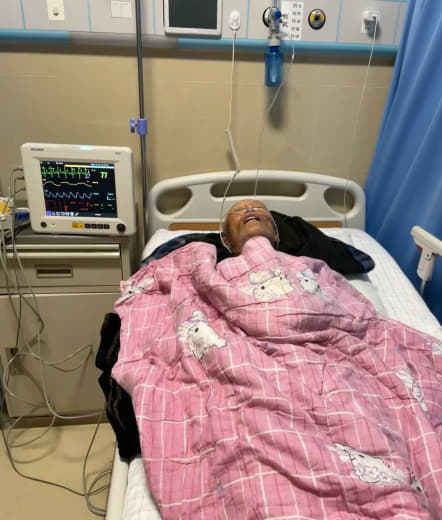Pierre Blanchard
Previous messages
Next messages
5 April 2025
S
00:22
Smile in the breeze
Hopefully ETH can rise a bit in these few hours.
😘
P
P
00:22
Pierre Blanchard
I have a feeling that once I do sell, the crypto will go up in a zoom manner! This is the game we are playing
S
00:23
Smile in the breeze
So crypto is playing games with you lol
P
00:23
Pierre Blanchard
Yes sadly 🤣 a game where I am not the winner.
00:24
I must admit that I am a little tired for being up all night. I will try to take a power nap later.
00:25
On the bright side, I file my taxes 🤣
S
00:26
Smile in the breeze
You take a break first honey.
😘
P
00:26
😘😘😘
P
00:26
Pierre Blanchard
I feel like I am playing a game of jump around
S
00:27
Smile in the breeze
lol. If you had followed my advice, this wouldn't have happened. But it doesn't matter, everything is for the best.
00:27
You should take a rest first
😘
P
00:27
You should take a rest first
❤
P
P
00:38
Lesson learned
00:38
Breakfast
S
01:01
Smile in the breeze
It's delicious, honey. Enjoy your breakfast
😘
P
P
01:20
Pierre Blanchard
I am really trying to sell to the maximum. What do you think the minimum should be ?
S
01:23
Smile in the breeze
You can sell it at 1800. It's very difficult.
P
01:23
Pierre Blanchard
It breaks my heart
S
01:24
Smile in the breeze
There is no way. We will earn it back in another way. Actually, you have already earned a lot.
P
01:24
Pierre Blanchard
I know. I do not like to loose money though
S
01:24
Smile in the breeze
You always lose a lot of money for a small amount of money
P
01:25
Pierre Blanchard
I know my love.
S
01:25
Smile in the breeze
That's how people are. They're never satisfied.
P
01:25
Pierre Blanchard
It is my old self
S
01:25
Smile in the breeze
This seems to be the rule. When you think about how to save money, you often lose more.
P
01:26
Pierre Blanchard
Possibly.
S
01:26
Smile in the breeze
ETH is now optimistic about its value appreciation
P
01:49
Pierre Blanchard
Should I wait a little longer? Looks like some sold ad $1810
S
01:50
Smile in the breeze
Wait a minute
01:50
The current price is 1826
P
01:58
Pierre Blanchard
Which app do you use to view the price?
S
02:15
Smile in the breeze
The price of each platform is different
02:15
How old are you now
02:15
You'll be able to sell it in a little while.
P
02:17
Today I am 55! In a few days that will be a different story. 🤣
02:23
Why you ask my love
S
02:23
Smile in the breeze
You are interesting. I am asking what the price is now.
02:23
🤣🤣🤣
P
02:25
Pierre Blanchard
In reply to this message
I am responding to that my love 🤣 I thought you forgot my age
S
02:25
Smile in the breeze
I know your age for sure.🤣🤣🤣
😘
P
P
02:26
Pierre Blanchard
It just dropped at 1809 but I think it is going to go back up.
S
02:31
Smile in the breeze
You can observe it again
02:31
And sell it
P
02:32
Pierre Blanchard
It is interesting to see how it follows closely the BTC pattern
S
03:21
Smile in the breeze
Yes, did you sell it?
P
03:22
Pierre Blanchard
Not yet my love
03:22
Going back up.
S
03:23
Smile in the breeze
🤣🤣
S
03:54
Smile in the breeze
Yes, honey.
❤
P
03:54
Send me the link to take a look at that
03:55
Is this already here?
P
03:56
I asked my neighbor to put inside my house. So it is safe and protected until I arrive.
S
03:57
Smile in the breeze
I'm not sure because they told me it won't be mailed until the 2nd.
03:57
When you get home you can see if you are right.
P
03:58
Pierre Blanchard
Okay
03:58
lol
S
03:58
Smile in the breeze
Or have you bought anything recently? lol
03:58
If not, then it should be my arrival.
P
04:00
Pierre Blanchard
I bought something as well but supposed to be delivered by USPS, not GoFo
04:00
It is suppose to be big, small?
S
04:01
Smile in the breeze
Small
P
S
04:03
Smile in the breeze
It should be mine
P
04:04
Pierre Blanchard
Okay
S
04:04
Smile in the breeze
I thought you were home
❤
P
P
04:04
Pierre Blanchard
Soon I will be there
04:04
On time to open with you 🥰
S
04:04
Smile in the breeze
ok
04:05
Safe driving
P
04:05
Pierre Blanchard
I am not gone yet my love.
S
04:05
Smile in the breeze
🤣
P
04:05
Pierre Blanchard
Leaving in a few days
S
04:05
Smile in the breeze
Where are you now?
P
04:06
Pierre Blanchard
I will stop in Utah to bring something to my son for his birthday
S
04:06
Smile in the breeze
Oh, it means it will take a few days for you to receive it, right?
P
S
04:07
Smile in the breeze
Is your son's birthday around the same time as yours?
P
04:07
Pierre Blanchard
In reply to this message
Yes. It is all good as I know I received it and it is safe. And I want to open with you. It is more meaningful to me
S
04:07
Smile in the breeze
ok
04:08
I hope you can see it and it's a surprise for you
04:09
I want to see you wearing it with a suit
P
04:09
Pierre Blanchard
Oh la la
S
04:09
Smile in the breeze
Then pair it with
P
04:09
Pierre Blanchard
I want you their with me to open it
🥰
S
04:09
It will be more fun
S
04:10
Smile in the breeze
great
😘
P
P
04:10
Pierre Blanchard
You are very special to my heart my love.
S
04:11
Smile in the breeze
Thank you. I love you so much
❤
P
P
04:17
Pierre Blanchard
I love you more
04:23
So you think ETH will go up more?
04:26
I feels it is struggling between the bull and bear market
S
08:21
Smile in the breeze
I don't think so. You always think it will go up. But what about since you held it until now?
08:23
Do you know there is a saying that a small gain leads to a loss of great value?
08:24
Throw away big benefits for the sake of small benefits; miss big things because you waste effort on small things.
P
08:27
Pierre Blanchard
I understand you and I am glad I have you at my side. I have sold the ETH earlier as I could not longer wait. It could take month to get back where I want it to be.
08:27
You brought me to a world that I am not familiar to.
08:27
I have still a lot to learn even so I am a fast learner for many things
S
08:28
Smile in the breeze
Don't worry. I'm always by your side.
❤
P
P
08:28
Pierre Blanchard
I am old school when it comes to money as it was not easy to earn it.
S
08:29
Smile in the breeze
Of course I understand your inner feelings,
08:31
But you have to balance what you're doing.
P
08:35
Everything I had on Crypto.com has been liquidated and transfered to my bank
08:37
How was your day my love? Why do I have the feeling you are still at work?
S
08:40
Smile in the breeze
I mean. When you do two things at the same time. You are afraid of losing your profits. You have to weigh which thing is most important.
08:40
Otherwise you will lose more things
08:41
This seems to be a certain law
P
08:41
Pierre Blanchard
In reply to this message
Yes you are correct, this is why I am still relying on you for guidance
S
08:42
Smile in the breeze
I am fine today. Because I am at my friend's house now.
P
08:42
Pierre Blanchard
Oh good. 😅 I am glad to hear that as I was a little concerned you were still at the office.
🥰
S
08:44
I do not know if I need to keep my crypto.com account anymore but I will keep it handy for now vs closing it after transfer.
S
08:45
Smile in the breeze
Have your funds reached your card now?
08:45
Anyway, you can put it aside first. It's always right
P
08:46
Pierre Blanchard
I think it will take a few hours or a day at least.
08:46
But that is okay. The transfer is done
👍
S
S
08:48
Smile in the breeze
Maybe it will take Monday to arrive. Or tomorrow
08:48
If only crypto.com could process it faster
P
08:48
Pierre Blanchard
Yes
08:49
But it is okay. It will be there :)
S
08:51
Smile in the breeze
😘😘
08:51
How are you tonight?
P
08:51
Pierre Blanchard
I am okay. An afternoon coffee helped 😚
08:52
😘
P
S
P
10:37
Pierre Blanchard
Looks like pretty simple to do and cool.
S
10:37
Smile in the breeze
Yes, some hair looks good when braided
P
10:37
Pierre Blanchard
I have not learned this one though
10:38
I used to do the hair on my daughter when she was a little girl.
S
10:40
Smile in the breeze
So you've got the basics covered lol
P
10:40
Pierre Blanchard
lol
10:40
I guess so
S
10:42
Smile in the breeze
That's really great.
10:42
Have you had dinner? I think you should go to bed early tonight. You didn't sleep well last night.
P
10:43
Pierre Blanchard
What are you up love ?
10:43
No dinner yet
10:43
I was thinking about it though
10:43
😘
10:44
I think I will sleep without a problem tonight
S
10:44
Smile in the breeze
Just getting ready to wash up and go to bed lol
10:44
You eat something first. Then go to bed early.
😘
P
P
10:45
Pierre Blanchard
I thought you were having a night over your friend’s place
S
10:46
Smile in the breeze
It's inconvenient for her husband to be here lol.
10:46
🤣🤣🤣
P
10:46
lol
10:47
But she may have a good night after that 🤣
🤪
S
S
10:47
Smile in the breeze
If my husband was here I wouldn't want anyone sleeping here either lol
P
10:48
Pierre Blanchard
Depends how loud you are!! 🥰🤪😜😍😘
S
P
10:49
Pierre Blanchard
😂
S
10:49
Smile in the breeze
lol. It's late. You usually eat dinner an hour ago. You've put dinner off for an hour now.
P
10:50
Pierre Blanchard
Yes. I usually do love. I am going to have something light
S
10:50
Smile in the breeze
Yes. You should go to bed early after eating. I will take a bath. Then I will watch a movie by myself. I will enjoy my alone time. Then I will sleep until I wake up naturally tomorrow.
❤
P
P
10:51
Pierre Blanchard
Yes
S
P
10:53
Pierre Blanchard
You really like that gif.
10:53
lol
10:54
Look like you are trying to be be sneaky and observe
10:54
What movie will You be watching ?
S
11:02
Smile in the breeze
Watch a Hong Kong movie. I haven't watched it for a long time.
❤
P
11:02
You eat lol first
11:02
I'm ready to take a shower
11:02
Good night, honey.
P
11:04
Good night my love! Sweet dreams and sleep tight with wonderful dreams.
P
11:32
Pierre Blanchard
I loved hearing you say, “I will watch a movie by myself. I will enjoy my alone time.” Taking moments for solitude is so important—it reconnects us with our independence and deepens our self-awareness. I, too, cherish those moments of being alone and have experienced many of them. Please know that I wholeheartedly support your need for self-care, both physically and mentally, because nurturing ourselves is key to maintaining our inner strength and peace.
Earlier tonight, I read a comment that said, “Husbands come and go, but your friends stay.” It resonated with me, and I felt compelled to respond: “If you cherish your husband with the same unwavering loyalty, love, and respect you give your best friend, he won’t be someone who comes and goes—he’ll be someone who stays and grows with you.”
I share these thoughts as we continue to discover and grow with each other. My heart is set on learning every nuance of who you are, and I find endless joy in rediscovering parts of you—whether they’re new surprises or cherished details we revisit together. I realize I’m opening up in ways I haven’t before, and it feels both different and beautiful.
Wishing you a night filled with beauty and wonder after you enjoy your Hong Kong movie and possibly fell asleep on it.
Sweet dreams
Earlier tonight, I read a comment that said, “Husbands come and go, but your friends stay.” It resonated with me, and I felt compelled to respond: “If you cherish your husband with the same unwavering loyalty, love, and respect you give your best friend, he won’t be someone who comes and goes—he’ll be someone who stays and grows with you.”
I share these thoughts as we continue to discover and grow with each other. My heart is set on learning every nuance of who you are, and I find endless joy in rediscovering parts of you—whether they’re new surprises or cherished details we revisit together. I realize I’m opening up in ways I haven’t before, and it feels both different and beautiful.
Wishing you a night filled with beauty and wonder after you enjoy your Hong Kong movie and possibly fell asleep on it.
Sweet dreams
P
22:09
Pierre Blanchard
Day -5
Good morning my love
Enjoy this weekend and remember every sunrise brings a fresh start, a new chance to shine in your own extraordinary way. Embrace your unique beauty, celebrate every step of your journey, and move forward with unwavering confidence, knowing that you are cherished and unstoppable.
Good morning my love
Enjoy this weekend and remember every sunrise brings a fresh start, a new chance to shine in your own extraordinary way. Embrace your unique beauty, celebrate every step of your journey, and move forward with unwavering confidence, knowing that you are cherished and unstoppable.
S
23:22
Smile in the breeze
In reply to this message
Honey, your words are like a gentle light, quietly shining into the softest place in my heart. Every sunrise seems to remind me that no matter how dark yesterday was, today can still start anew. You made me believe that every step of life has a purpose and that I, too, can shine in my own way. Thank you for wrapping me with such words and caring for my courage to move forward. This weekend, I will savor every moment and take your encouragement to heart. May we all take each other's warmth and move firmly into the future
❤
P
23:23
In reply to this message
Your response to that sentence was very moving, and the loyalty and dedication to love moved me. We all long for a person who is not only to stay, but is willing to grow up together and guard every moment of the long stream together. And you are the one who is willing to walk side by side with me and experience every detail with your heart.
❤
P
P
23:33
Pierre Blanchard
Thank you my love for your beautiful and heartwarming response.
S
23:34
Smile in the breeze
Honey, I'm thinking of you, too, only five days before we meet, I'm looking forward to it, love you
❤
P
23:34
I just hope we can resolve this withdrawal issue smoothly, and I believe we can
23:34
Did the funds you withdrew reach your bank account?
P
23:34
Pierre Blanchard
I hope you had a beautiful night filled with dreams that may show you the happy life ahead
❤
S
23:35
In reply to this message
The funds did not reach yet but I am not worry as I know it will on time.
S
23:37
If you withdrew the funds on Thursday, it's already arrived
P
23:38
Pierre Blanchard
It is may arrive first thing on Monday. And that is okay
S
23:41
Smile in the breeze
So how close are we to 200,000?
P
23:42
Pierre Blanchard
Not close at all my love. I hope you can help me as you mentioned!
S
23:42
Smile in the breeze
I'm still waiting for the loan approval
P
23:44
Pierre Blanchard
It is going to be tight.
S
23:48
Smile in the breeze
You should also think of a solution. Let's solve it together.
6 April 2025
P
00:05
Pierre Blanchard
I am thinking of a solution my love. Not easy to do I d such fu da for me.
S
00:11
Smile in the breeze
I know you've put in a lot of effort. If we don't do that then time will drag on and it will be harder for us to do this.
P
00:58
Pierre Blanchard
I understand, my love.
We’ve already put in so much—$720,000, including your initial contribution—and I know how much this means to both of us. It’s just that finding additional funds right now is really challenging. I also realize that delaying any further might make things even harder, and that weighs on me too.
We’ve already put in so much—$720,000, including your initial contribution—and I know how much this means to both of us. It’s just that finding additional funds right now is really challenging. I also realize that delaying any further might make things even harder, and that weighs on me too.
S
01:16
Smile in the breeze
It is normal to have stress. We will always encounter various problems in our lives. But when we solve the problems, we will be greeted by the dawn of victory. There is a happy ending. Your birthday. My arrival. The funds are perfectly resolved. It is a perfect ending for us.
01:17
It seems like all good things have come together on this day.
😘
P
S
08:47
Smile in the breeze
How are you today, honey
P
09:04
Pierre Blanchard
I’m okay, my love. Just having a quieter weekend—taking time to organize and tend to the house. I’ve been clearing out some of the construction debris, working in the yard, and doing a bit of soul searching along the way. It’s been a mix of physical tidying and emotional reflection—both needed, both healing in their own way.
09:04
And thinking of you a lot as well. 😘
S
09:17
Smile in the breeze
That's awesome. Take time for yourself.
09:17
😘😘😘😘
09:18
Why don't you let your neighbor open the gift?
P
09:47
Pierre Blanchard
The gift is special to me and I should be the one opening it and I will very soon 😘
09:48
I am looking forward to open it
S
10:02
Smile in the breeze
You'll like it, I promise.
😘
P
P
10:02
Pierre Blanchard
I know I will my love.
S
10:02
Smile in the breeze
You can wear it every day
P
10:12
Pierre Blanchard
Don’t give it away or tell me what it is my love. 🤣
I want to be excited to discover it
I want to be excited to discover it
S
10:16
Smile in the breeze
Of course I'm looking forward to you opening it
😘
P
P
10:44
Pierre Blanchard
I have not seen the time passing by my love.
I wish you a beautiful night as I am sure you are ready for bed.
Sweet dreams and sleep tight. See you in your dreams
I wish you a beautiful night as I am sure you are ready for bed.
Sweet dreams and sleep tight. See you in your dreams
S
10:53
Smile in the breeze
Good night honey. Have a sweet dream
P
10:53
Pierre Blanchard
I love you
P
22:54
Pierre Blanchard
Good morning, my love,
Wishing you a peaceful and restful Sunday—one that gently recharges you before the adventures ahead. As you begin to prepare your suitcase gearing up and mentally step into vacation mode, remember to pause and care for you too. A little self-love goes a long way, especially before a new journey.
Today is also a meaningful day for me—my son turns 28, just four days before my own birthday. He was born on a Sunday, just like today, and now, he’s officially half my age. 😄 Life has such beautiful symmetry, doesn’t it? It’s incredible to see how far time has brought us, and even more beautiful to share these reflections with you.
I hope your day is as warm and meaningful as mine already feels.
Wishing you a peaceful and restful Sunday—one that gently recharges you before the adventures ahead. As you begin to prepare your suitcase gearing up and mentally step into vacation mode, remember to pause and care for you too. A little self-love goes a long way, especially before a new journey.
Today is also a meaningful day for me—my son turns 28, just four days before my own birthday. He was born on a Sunday, just like today, and now, he’s officially half my age. 😄 Life has such beautiful symmetry, doesn’t it? It’s incredible to see how far time has brought us, and even more beautiful to share these reflections with you.
I hope your day is as warm and meaningful as mine already feels.
7 April 2025
S
01:18
Smile in the breeze
Good morning, dear
Thank you for such a sincere message. It's moments like these that remind me how good life can be, especially when shared with someone as thoughtful as you. Happy 28th birthday to your son - what a special milestone! Your birthday is coming up too, and it feels like the universe is celebrating both of your birthdays in the most perfect way possible.
May this Sunday be filled with peace, thought and magic. May there be more common moments, so that the symmetry of life is more beautiful.
❤
Thank you for such a sincere message. It's moments like these that remind me how good life can be, especially when shared with someone as thoughtful as you. Happy 28th birthday to your son - what a special milestone! Your birthday is coming up too, and it feels like the universe is celebrating both of your birthdays in the most perfect way possible.
May this Sunday be filled with peace, thought and magic. May there be more common moments, so that the symmetry of life is more beautiful.
P
P
01:21
Pierre Blanchard
I hope you had a beautiful night.
S
01:24
Smile in the breeze
😘😘😘😘
P
01:27
Pierre Blanchard
😘😘😘
01:27
S
01:41
Smile in the breeze
Do you have any plans for today?
P
01:48
Pierre Blanchard
Today I am doing more cleaning up and preparations. 🙂
Monday the electrical supply company PG&E is coming to change a transformer on the outside line. Not sure if I need to be there or not.
So we will see that in Monday morning.
Monday the electrical supply company PG&E is coming to change a transformer on the outside line. Not sure if I need to be there or not.
So we will see that in Monday morning.
01:48
What do you have planned for today ?
S
01:51
Smile in the breeze
I'm going to get a facial and massage with my friend.
❤
P
01:51
I haven't relaxed in a long time
P
01:52
Pierre Blanchard
I am so glad you are doing this for yourself.
S
03:04
Smile in the breeze
🤪🤪
❤
P
P
03:34
Pierre Blanchard
“I’ve just spent the past hour on the phone with my cousin Marthe in France. 🇫🇷
We caught up on all sorts of things, including the recent passing of a family member who was 97 years old. He lived a full and meaningful life and was the last of my grandmother’s generation, so we spent some time reminiscing about that.
We caught up on all sorts of things, including the recent passing of a family member who was 97 years old. He lived a full and meaningful life and was the last of my grandmother’s generation, so we spent some time reminiscing about that.
S
04:38
Smile in the breeze
It was very touching to hear you and Marthe talk so much. 97 years of life is really full, left many precious memories. Your mention of him as the last of Grandma's generation must have touched you both a lot, didn't it?
😘
P
P
05:15
Pierre Blanchard
Yes his passing did touch us a lot.
Marthe and I are both have shared a lot in our life. I lived with her at one point in my life.
The funny part is after messaged you we spoke again. 🤣 we spoke about a total of 3 hours and 15 minutes together today 🤣
I guess we both needed it. 😘😘😘
Marthe and I are both have shared a lot in our life. I lived with her at one point in my life.
The funny part is after messaged you we spoke again. 🤣 we spoke about a total of 3 hours and 15 minutes together today 🤣
I guess we both needed it. 😘😘😘
05:16
How is your self care day with your friend going? Hope you are having a great time and enjoying some well deserved recreational time 😘😘😘
S
05:23
Smile in the breeze
I feel that the whole person is relaxed a lot. We're going to soak in the hot springs for a while. Then we'll take a shower and go out for dinner.
❤
P
P
05:32
Pierre Blanchard
I can totally picture you unwinding in the hot springs—cucumber slices on your eyes, a mud mask covering your beautiful face and chest, looking like a blissed-out spa goddess. 😘😘😘
Okay, maybe I’m improvising a bit, 🤣but just knowing you’re relaxing like that makes me smile.
Enjoy a delicious dinner with your friend, my love… and don’t forget to save room for dessert—me, in spirit! 😘😘😘
Okay, maybe I’m improvising a bit, 🤣but just knowing you’re relaxing like that makes me smile.
Enjoy a delicious dinner with your friend, my love… and don’t forget to save room for dessert—me, in spirit! 😘😘😘
S
07:21
Smile in the breeze
You have a very good imagination. lol. Have a nice day
😘
P
P
07:44
Pierre Blanchard
Have a nice day! lol
07:44
Going to get a haircut
S
08:45
Smile in the breeze
I'll take a picture of it later
😘
P
P
P
P
10:20
Pierre Blanchard
Hello my love, are you still out or back home?
10:25
The days are growing longer, and there’s a soft, dreamy kind of magic in the light that lingers. Stepping outside, letting the sun wrap around you like a gentle embrace—it soothes something deep within. That golden hour glow spilling into the evening, the whisper of a breeze, the quiet hum of life all around… it’s like the world is slowly exhaling, inviting you to do the same.
P
11:04
Pierre Blanchard
I hope you’re doing well, my love, and that your evening was filled with peace and joy. Wishing you the sweetest night, with beautiful dreams—maybe the kind where we find each other. 😘😘😘
S
11:17
Smile in the breeze
I also particularly like the feeling of being gently surrounded by the sun, as if all the fatigue has been smoothed away. The evening breeze and the subtle sounds around really make people feel like the whole world is relaxing, like reminding us to slow down and enjoy the moment. I hope you can feel the peace too, and have a nice dream tonight, maybe we can meet again in the dream. 😊 😊 😊
❤
P
11:17
I just finished washing honey. I'm ready for bed. Good night.
P
11:26
Pierre Blanchard
😘😘😘
P
S
22:39
Smile in the breeze
On Monday morning, may the first ray of sunshine bring you endless hope and vitality. A new day, a new beginning, good morning!
22:43
Today the price of ETH is over 1500. Fortunately you sold it early.
22:43
🤣
P
22:55
Pierre Blanchard
Good morning my love,
On this Monday morning, may the very first ray of sunshine wrap you in warmth and fill your heart with endless hope and renewed vitality.
A new day, a fresh beginning—full of promise, opportunity, and your radiant energy ready to shine through it all, may this week start with grace, strength, and the quiet joy of knowing how deeply you are loved.
On this Monday morning, may the very first ray of sunshine wrap you in warmth and fill your heart with endless hope and renewed vitality.
A new day, a fresh beginning—full of promise, opportunity, and your radiant energy ready to shine through it all, may this week start with grace, strength, and the quiet joy of knowing how deeply you are loved.
S
22:57
Smile in the breeze
A new week begins. May our days be full of hope and energy, just like you always bring to me. Let's welcome this new week full of opportunities and beautiful, love you!
22:57
😘😘😘
P
22:58
Love you more
22:59
Listen entirely to music
S
22:59
Smile in the breeze
After listening to this song, I feel that my whole mood is relaxed. yearning for good times
P
23:00
Pierre Blanchard
It was made for you with your name.
S
23:01
Smile in the breeze
love you
❤
P
P
23:01
Pierre Blanchard
[Verse 1]
We light up the night like stars that glow,
With every heartbeat, our love starts to flow.
In your eyes, I find my home and my way,
Together we'll dance, come what may.
Just you and me, we’ll take on the world,
[Chorus]
Shishi, together we'll soar so high,
Infinite love, underneath this sky.
Bound by the bond that we’ve built so strong,
In this dance of life, forever's where we belong.
[Verse 2]
Our laughter rings out, echoing bright,
With your hand in mine, everything feels right.
We sketch our dreams on the canvas of time,
In this vibrant love, our spirits will climb.
As we rise up, let our hearts speak true,
[Chorus]
Shishi, together we'll soar so high,
Infinite love, underneath this sky.
Bound by the bond that we’ve built so strong,
In this dance of life, forever's where we belong.
[Outro]
So here’s to us, let the magic unfold,
In this vibrant love, we'll never grow old.
We light up the night like stars that glow,
With every heartbeat, our love starts to flow.
In your eyes, I find my home and my way,
Together we'll dance, come what may.
Just you and me, we’ll take on the world,
[Chorus]
Shishi, together we'll soar so high,
Infinite love, underneath this sky.
Bound by the bond that we’ve built so strong,
In this dance of life, forever's where we belong.
[Verse 2]
Our laughter rings out, echoing bright,
With your hand in mine, everything feels right.
We sketch our dreams on the canvas of time,
In this vibrant love, our spirits will climb.
As we rise up, let our hearts speak true,
[Chorus]
Shishi, together we'll soar so high,
Infinite love, underneath this sky.
Bound by the bond that we’ve built so strong,
In this dance of life, forever's where we belong.
[Outro]
So here’s to us, let the magic unfold,
In this vibrant love, we'll never grow old.
S
23:05
Smile in the breeze
This song is so romantic! It seems that our love has been sublimated into a moving melody. Every word of the lyrics seems to be tailor-made for us, especially the line "In the dance of life, there is always a place where we belong", which is simply heart-melting. We are like stars in the night sky, illuminating each other and shining together. This song makes me look forward to every moment of our future, whether it is laughter or challenges, we will go through it hand in hand. Let us continue to compose our own music together, so that this love will always be fresh and never fade. Love you forever and always! ❤️
❤
P
P
23:06
Pierre Blanchard
I just want to share how I feel with you freely—even if I come off a little cheesy and soft sometimes!
S
23:31
Smile in the breeze
😘😘😘😘😘
23:32
By the way, have you received the funds in your bank card? ?
23:41
I received it, but still have to wait for the funds to reach my bank account
P
23:52
Pierre Blanchard
Thank you my love, I still need to find more funds.
S
P
23:55
Pierre Blanchard
I have $30k more
S
23:56
Smile in the breeze
So you have a total of $100,000?
P
23:56
Pierre Blanchard
With what you are providing we are at $137k
23:56
Yes
S
23:56
Smile in the breeze
That's a gap of about 60,000
👍
P
P
23:56
Pierre Blanchard
I need to find 63k more
S
23:57
Smile in the breeze
Yes, honey.
23:57
Less than two days to go
P
23:58
Pierre Blanchard
Important question. How confident are you we will get the money back from COINW? We need to make sure that we are not putting all that energy and money for nothing. I am honestly very nervous to do it.
8 April 2025
P
00:02
Pierre Blanchard
ANBICOIN releases my money yesterday but I did not receive it yet. It says withdraw successfully but it also says coin locked. I reached out to them to find out the meaning of it but with time difference I have not had a response yet.
00:03
Do you know what it means ?
S
00:09
In reply to this message
If I can withdraw my money, I'm sure you can withdraw yours, too. I will bear the burden with you.
P
S
00:11
I told you not to trust this platform. Did you forget what I told you?
P
00:11
Pierre Blanchard
In reply to this message
Okay love. I took money from the TRUST account last time with the lawyer permission. I do not want to have trouble because the money is not there anymore
S
00:12
Smile in the breeze
Just like everything I told you. Nothing is ever out of my control. But you messed up. I don't think I can save you.
00:13
You said ETH will appreciate. I asked you to cash out at $1,800. This is also correct.
00:13
Otherwise you will lose more
P
00:14
Pierre Blanchard
In reply to this message
It was a total of $33k but some of it was never in Estes and they were able to use that to pay taxes. So that helped a lot.
S
00:14
Smile in the breeze
Don’t you think everything I do is going in the right direction?
P
S
P
S
00:15
Smile in the breeze
Let's work together to withdraw the funds from CoinW first.
P
00:16
Pierre Blanchard
Just need to receive the funds
00:16
And it they ask for more. I will not pay them
S
00:16
Smile in the breeze
This is correct honey.
P
00:17
Pierre Blanchard
In reply to this message
Yes everything you do is in the right direction. I trust you and I have faith in you as I can see an amazing future together
00:18
I just do not trust so much COINW
S
00:18
Smile in the breeze
Remember I won't hurt you. I will only work for our future together.
❤
P
00:18
😘😘😘😘
P
S
00:18
Smile in the breeze
Don't worry. I will move forward with you.
P
S
00:19
Smile in the breeze
What I mean is that no matter what you do, don't do it alone. You have to discuss it with me. Avoid serious mistakes.
😘
P
P
00:20
Pierre Blanchard
I did not mess up with CoinW, I always applied y the rules and follow their instructions and waited for permissions to proceed and withdraw and yet I am in that situation, so it is hard for me to trust them fully.
S
00:21
Smile in the breeze
Honey, you're not allowed to trade with Coinw anymore, they just want to wire money into your bank account
00:21
They have given the perfect ending method. Deposit directly into your bank card. This way you completely avoid a lot of trouble. You don't need to worry about anything.
👍
P
P
00:22
Pierre Blanchard
I know, I just hope they are honest about it.
S
00:22
Smile in the breeze
You have to make final confirmation with them
P
00:23
Pierre Blanchard
What do I need to ask them specifically?
S
00:24
Smile in the breeze
When you pay the money, will it all be transferred to your bank card? And there will be no additional fees.
P
00:25
Pierre Blanchard
Ok
S
00:25
Smile in the breeze
The risk control department and the finance department will not have any problems.
P
00:25
Pierre Blanchard
Ok
S
00:25
Smile in the breeze
As long as these points are confirmed, I think there will be no problem. Because the risk control department and the financial department are the most important.
P
00:27
Pierre Blanchard
Ok. I will draft a memo for them and pass it on to you first.
S
00:29
Smile in the breeze
😘😘
P
01:13
Pierre Blanchard
What do you think of this? Do I need to To: Finance Department
Before proceeding with the transfer of funds, I would like to confirm the following terms to ensure mutual understanding and avoid any future issues.
1. Transfer Amount
The agreed-upon transfer amount is $1,788,114.06, calculated as follows:
• Gross amount: $1,902,249.00
• Less 6% fee: $114,134.94
• (You have agreed to cover the remaining 4% of the total fee.)
2. Deposit
A $200,000 deposit will be transferred to you and is to be fully refunded after three (3) months.
3. No Additional Fees
No further fees or charges of any kind will be required beyond the amounts stated above.
4. Wire Transfer Conditions
The wire transfer will be initiated immediately upon confirmation of receipt of the $200,000 deposit to the Bank of America account previously verified and confirmed by you.
Please confirm your acknowledgment and agreement to the above terms at your earliest convenience.
Best regards,
Pierre Blanchard
👍
Before proceeding with the transfer of funds, I would like to confirm the following terms to ensure mutual understanding and avoid any future issues.
1. Transfer Amount
The agreed-upon transfer amount is $1,788,114.06, calculated as follows:
• Gross amount: $1,902,249.00
• Less 6% fee: $114,134.94
• (You have agreed to cover the remaining 4% of the total fee.)
2. Deposit
A $200,000 deposit will be transferred to you and is to be fully refunded after three (3) months.
3. No Additional Fees
No further fees or charges of any kind will be required beyond the amounts stated above.
4. Wire Transfer Conditions
The wire transfer will be initiated immediately upon confirmation of receipt of the $200,000 deposit to the Bank of America account previously verified and confirmed by you.
Please confirm your acknowledgment and agreement to the above terms at your earliest convenience.
Best regards,
Pierre Blanchard
S
S
01:14
Smile in the breeze
As good as gold
P
01:14
Pierre Blanchard
I will send
S
01:14
Smile in the breeze
And wait for a reply
P
01:15
Pierre Blanchard
Done
P
01:43
Pierre Blanchard
The ETH dropped at $1411 last night. Crazy
S
01:43
Smile in the breeze
Luckily you listened to me. Otherwise you would be even crazier lol. Can't sleep all night
P
S
01:44
Smile in the breeze
🤣🤣🤣
P
01:44
Pierre Blanchard
Subject: Re: Confirmation of Fund Transfer Terms
Dear Pierre Blanchard,
Thank you for your message.
I hereby confirm that I have confirmed and fully agree with all the points you listed:
1. Transfer Amount
I confirm that the agreed transfer amount is $1,788,114.06, based on the total amount of $1,902,249.00, less a 6% fee of $114,134.94, and the remaining 4% of the total fee will be borne by us as agreed.
2. Deposit
We confirm that your deposit of $200,000 will be fully refunded after three months.
3. No Additional Fees
We confirm that there will be no further fees or charges other than the stated amount.
4. Wire Transfer Terms
We confirm that upon receipt of your deposit payment, we will initiate a wire transfer to your previously verified and confirmed US bank account, and the amount settled in your Coinw account will be wired to your bank account within 24 hours after your payment.
Dear Pierre Blanchard,
Thank you for your message.
I hereby confirm that I have confirmed and fully agree with all the points you listed:
1. Transfer Amount
I confirm that the agreed transfer amount is $1,788,114.06, based on the total amount of $1,902,249.00, less a 6% fee of $114,134.94, and the remaining 4% of the total fee will be borne by us as agreed.
2. Deposit
We confirm that your deposit of $200,000 will be fully refunded after three months.
3. No Additional Fees
We confirm that there will be no further fees or charges other than the stated amount.
4. Wire Transfer Terms
We confirm that upon receipt of your deposit payment, we will initiate a wire transfer to your previously verified and confirmed US bank account, and the amount settled in your Coinw account will be wired to your bank account within 24 hours after your payment.
01:44
From CoinW
S
01:46
Smile in the breeze
I just read the full regulations. It's good for us. CoinW has made a commitment. I think there will be no problem this time.
👍
P
01:48
Have your funds arrived in your bank card?
P
01:49
Pierre Blanchard
Not yet
01:49
Have the funds arrived to your bank account?
01:52
I hope the money will reach my bank account tomorrow
01:52
It says it takes 1-3 business days
P
01:53
Pierre Blanchard
Where did you get the loan from my love ?
S
01:55
Smile in the breeze
You want to apply for a loan too?
P
01:56
Pierre Blanchard
I cannot do that, as I have no job right now! I was just curious, that is all.
S
01:57
I applied for an online loan here
01:57
I'd like to help you, but I'm worried that the money for tomorrow's loan won't reach my bank account right away
P
01:58
Pierre Blanchard
I hope it will be all okay.
S
01:58
I'm taking out a loan because I love you
P
01:58
Pierre Blanchard
I know love
S
01:58
Smile in the breeze
I'll do it for you
P
01:59
Pierre Blanchard
I love you too
P
07:57
Pierre Blanchard
Hi love, started to transfer fund to Coinbase wallet.
07:58
Hope your afternoon is going well
07:58
Maybe evening now for you.
S
07:59
How many altogether?
P
08:00
Pierre Blanchard
Money from wire is good.
S
08:00
Smile in the breeze
Yes, how much is it altogether?
P
08:01
Pierre Blanchard
Still waiting to hear back from ANBICOIN as why it is locked. Hopefully a mistake on their end
08:01
So far $120k
08:01
Went to bank this afternoon.
08:02
If ANBICOIN release fund, then I will be good
08:02
But no guarantee on that
S
P
08:02
Pierre Blanchard
So hard to get the funds and very stressful.
08:03
I did not pay them anything as I mentioned this morning. I do not want to transfer anything to them if no guarantee.
S
08:04
Smile in the breeze
You now have a total of $120,000? If the money from my loan reaches my account tomorrow, I can help you with $40,000
08:04
That leaves us with a $40,000 gap
P
08:04
Pierre Blanchard
I know and I am stressing about it.
S
P
08:05
Pierre Blanchard
But I have you in my heart to make me believe everything will be alright
S
08:05
Smile in the breeze
Trust me, we can get our money back 100%
08:05
I have enough confidence
😘
P
P
08:05
Pierre Blanchard
Okay love
08:06
I hope you are ready for a lots of kisses
S
08:06
Smile in the breeze
Now that the funds have arrived, you can contact Coinw customer service and tell them that we will pay the full amount tomorrow
08:06
Have them prepare a payment address for us
P
08:07
Pierre Blanchard
I already contacted them earlier today to tell them I will inquire for the address tomorrow.
S
08:07
Smile in the breeze
Need a one-time payment of 200,000? You can still pay in installments, and you have to consult clearly
P
08:08
Pierre Blanchard
Do you think I can send everything at once from Coinbase WALLET
08:08
also I want to start sending them money once we have everything on my end
08:09
Not before because I am short they will not return the money I already sent! That I know
S
08:11
If we can choose to pay in installments, it is better for us. If they accept the deposit and pass the audit, it means that our subsequent payments can pass the audit, because the funds come from the same account
👍
P
P
08:11
Pierre Blanchard
I am sure they will be happy to receive all at once. I am not sure if I can from Coinbase wallet.
S
08:11
Smile in the breeze
Pay $50,000 in one installment and then split it into four installments. Each time you pay any amount, have them check for us immediately to see if the funds have passed the audit.
P
08:12
Pierre Blanchard
That was their requirement to come from the same account
S
08:13
Smile in the breeze
In reply to this message
Have them review the funds for you four times, and ask them to make a promise that you won't make a second payment until the $200,000 is paid
08:13
I think this way of dealing with it is to our advantage
08:14
Inform them that if your funds are not approved, they will have to be returned before you can pay them again
P
08:15
Pierre Blanchard
In reply to this message
I am not sure I follow. They will want the $200,000 before the wire transfer is done
08:15
In reply to this message
Do you mean each time I make a payment, have them validate and approve the payment I just made ?
S
08:16
Smile in the breeze
Yes, honey.
👍
P
08:17
So if you have time, you can get in touch with them and communicate before payment
P
08:17
Pierre Blanchard
Sure I will do that when I have a moment and ready for them
S
08:19
Smile in the breeze
OK. Honey, you remember to tell me, I will be with you!
P
08:19
Pierre Blanchard
I will share with you my love
S
P
08:23
Pierre Blanchard
Love you more
S
09:00
Smile in the breeze
Honey, are you home now?
09:00
I can wire you 40,000 tomorrow, and then I'll transfer the money to your wallet
09:01
I have received the money for the loan
P
09:09
Pierre Blanchard
Yes I am home now
09:10
Thank you so much
09:11
You are amazing
09:18
Do you need my bank information?
S
09:25
Smile in the breeze
In reply to this message
Honey, no need, I can wire directly to my wallet and then forward to your wallet
😘
P
P
09:26
Pierre Blanchard
Okay. That is simpler
09:26
So you need my address.
09:27
Please send USDC as it is what I am sending to CoinW and like this there will be no loss in exchange.
S
09:30
Smile in the breeze
In reply to this message
Yes, honey, you can send me your address tomorrow
09:30
I can transfer you USDC
09:31
0xbE5d6dD92AeE3bc652E2befFC679843460C89Ebc
09:31
I rather you have it now
S
09:31
Smile in the breeze
OK. Honey, I'll transfer you 4000USDC tomorrow
P
09:31
Pierre Blanchard
Sounds good my love.
S
09:31
Smile in the breeze
In reply to this message
Honey, I can't wire you right now. I need to wire you tomorrow
P
09:31
Pierre Blanchard
How many more days are you working?
S
09:32
Smile in the breeze
There's a whole day of work tomorrow
P
09:32
Pierre Blanchard
Are you working Wednesday too?
S
09:32
Smile in the breeze
Then I'm ready to go to your city. I'm looking forward to seeing you
09:33
Now you can contact Coinw customer service and ask them to give you the address to pay and verify your funds after you pay
P
09:33
Pierre Blanchard
Me too my love. I am looking forward just to hold you in my arms
09:33
They will give me that tomorrow only.
09:33
Not before
S
09:33
Smile in the breeze
You need to apply for payment with them in advance
P
09:34
Pierre Blanchard
Yes.
S
09:34
Smile in the breeze
I think they will give it to you, and you should be prepared in advance, after all we only have one day left to pay
P
09:34
Pierre Blanchard
That is true
S
09:34
Smile in the breeze
I don't want other problems to delay the progress of this matter tomorrow
09:34
So you contact them now and if they don't give you the payment address until tomorrow, then we can wait
P
09:35
Pierre Blanchard
Okay
S
09:42
I have the address
S
09:42
Smile in the breeze
In reply to this message
oh, honey, you can pay once now, and you can pay the second time after the approval
P
09:43
Pierre Blanchard
Ok
S
09:43
Smile in the breeze
Yes, tell them what you want, and then you can pay
P
09:48
Pierre Blanchard
First payment is done and they have received it and submitted for review
S
09:49
Smile in the breeze
Okay, honey, you're gonna have to wait for them to confirm before you transfer the second money
P
09:50
Pierre Blanchard
Oh I will !
09:50
I am listening to your feedback first
S
09:53
Smile in the breeze
This is the right thing to do, and if the first audit fails, we don't need to worry about losing the lump sum, at least it's only part of the money
09:53
Here's what I think
09:53
Only do what's right for you
P
09:54
Pierre Blanchard
Okay love. I hate the idea to even loose $50k
S
P
09:58
Pierre Blanchard
I agree with you
S
S
10:00
Smile in the breeze
In reply to this message
OK. Honey, just wait. It turned out to be the right choice
😘
P
10:00
They said the funds would be returned to us if they didn't pass muster
😘
P
P
10:00
Pierre Blanchard
It is good to know that they will return the funds to my wallet. But I will believe it when I see it
S
10:01
Smile in the breeze
This is advantageous
10:01
Yes.
P
10:01
Pierre Blanchard
Are you going to bed soon?
10:02
Taking a shower and later I will be on the road to go see John-Pierre and then Colorado
❤
S
S
P
S
P
10:07
Pierre Blanchard
Already showered
❤
S
S
10:08
Smile in the breeze
🥰🥰🥰
10:08
Well, I'll take a shower first. It's late
10:08
Let me know if customer service gets back to you
P
10:08
Pierre Blanchard
Go ahead my love
S
10:08
Smile in the breeze
I want to know
P
10:09
Pierre Blanchard
I will let you know
❤
S
S
P
10:09
Pierre Blanchard
Love you more
❤
S
10:11
They just reviewed the first one
S
10:12
Then we can prove that there is no problem with our funds and we can continue to pay
P
10:12
Pierre Blanchard
Yes and I will ask for review again
S
S
10:33
Did you pay once or twice today?
P
10:35
Pierre Blanchard
I paid twice so far
10:35
And I am still transferring funds to my wallet first
P
11:02
Pierre Blanchard
Have a beautiful night my love.
11:02
Sweet dreams
S
11:13
Smile in the breeze
Good night honey. I just finished washing up. We meet in dreams
P
12:07
Pierre Blanchard
I am going to be on the road now and I will be thinking about you. 😘😘😘 sweet dreams
S
22:15
Smile in the breeze
Honey, good morning. I've wired funds to my wallet
P
22:19
Pierre Blanchard
Hi love. Hope you slept well.
Just stopped myself for an hour to rest and feel better now.
❤
Just stopped myself for an hour to rest and feel better now.
S
22:19
Thank you for transferring the funds to your wallet. 😘😘😘
❤
S
22:21
Do you need me now or can I drive for a while?
S
22:22
In reply to this message
The funds have not reached my wallet, I have your wallet address, I will transfer the funds to you as soon as they arrive
P
22:22
Pierre Blanchard
Okay my love.
22:22
Let me send it to you once more
22:23
USDC
22:23
0xbE5d6dD92AeE3bc652E2befFC679843460C89Ebc
S
22:23
Smile in the breeze
Honey? So you got all the other money?
P
22:23
Pierre Blanchard
YES
S
22:23
Smile in the breeze
We need to pay $50,000 twice today
P
22:24
Pierre Blanchard
Yes we do
S
22:24
Smile in the breeze
OK, that's good. Then we can pay on time today
P
22:24
Pierre Blanchard
And done
22:25
Driving now.
Contact me when you want to!
I will listen to my phone
Contact me when you want to!
I will listen to my phone
S
P
23:26
Pierre Blanchard
Thank you my love. 🥰
23:26
I received the funds
23:26
I love you
23:27
Need to find a good spot to ensure good transaction
S
23:50
Smile in the breeze
OK, honey, I've transferred 40000USDC to you
❤
P
23:51
I'm reviewing the documents
23:51
Talk to you later. Love you
9 April 2025
P
00:04
Pierre Blanchard
I love you.
00:05
I am done and sent everything
❤
S
S
00:10
Smile in the breeze
In reply to this message
OK. Honey, all approved? Then we'll get the money today
P
00:11
Pierre Blanchard
Waiting
S
00:15
Smile in the breeze
OK. Honey, I'll finish my work first
00:15
Chat later
S
P
00:20
Pierre Blanchard
Apparently they can tell you sent me the money
00:21
I need to send back the money to you first
00:21
What is your address
S
00:23
Please give me your address
S
00:23
Smile in the breeze
Okay, I'll give it to you now
00:23
Is that the wallet address I just sent you?
P
00:24
Pierre Blanchard
It has to be the same as the message
00:24
The address you sent from
S
00:25
Smile in the breeze
OK
00:28
So the funds are going back to my account
P
00:28
Pierre Blanchard
Yes
S
00:28
Smile in the breeze
Then you need to pay another 40,000 USDC for verification?
P
00:28
Pierre Blanchard
But it has to be that address
S
00:28
Smile in the breeze
I got my money through a loan
00:29
I don't understand. Why is there a problem with my funds
P
00:29
Pierre Blanchard
Yes. But my Coinbase account is now locked
S
00:29
Smile in the breeze
Is there a problem with my wallet?
P
00:30
Pierre Blanchard
Because you helped me before from that account and they can trace everything in the background
00:30
Too many transactions
S
00:30
Smile in the breeze
Okay, so your Coinbase is locked, how do you transfer funds to me?
00:30
Then how can we complete the payment today?
00:30
These are the problems
P
00:30
Pierre Blanchard
Not my wallet
00:31
2 hours
S
00:31
Smile in the breeze
Did you just pay with your wallet?
P
00:46
Pierre Blanchard
I will
00:46
0x436792380016840ad7b32d7f1f94cc41af032dae
00:46
This is your address I am going to send to
S
00:47
So you have enough money to pay?
P
00:48
Pierre Blanchard
I had to take from my retirement account
S
00:50
Smile in the breeze
Honey, I got it
00:50
Let's finish early.
00:53
I'd love to help you, but I didn't know this was gonna happen. I'm sorry, honey
P
00:57
Pierre Blanchard
I hope this will not cause any issues
S
00:58
Smile in the breeze
Now that the funds have been returned, we will receive them to wire the funds for you after proving this payment
00:59
Also prove that each payment of funds, they do need to be audited
00:59
They can see exactly where our money comes from
P
01:12
Pierre Blanchard
Yes
01:12
Talking to Coinbase now
S
01:29
I had to finish
01:29
And could not chat 💬
01:30
I had to verify it was me with Coinbase
01:30
Read pictures
01:37
I hope this is not going to be an issue
To get the wire transfer
To get the wire transfer
S
01:39
Smile in the breeze
God bless
😘
P
01:39
P
01:50
Pierre Blanchard
I have a knot in my stomach
01:58
I am very nervous love
02:07
Risk Control Notice | Explanation on account triggering high-risk behavior again and adjusting margin ratio
Dear Pierre Blanchard:
Hello!
After routine monitoring by our company's risk control system, the audit results show that your account has again engaged in high-risk transactions today, which has constituted a continuous violation. We have already informed you that your personal wallet account cannot engage in any high-risk behavior again. In accordance with the platform's "Risk Control Management Measures" and related compliance clauses, in order to prevent potential risks and ensure market stability, the risk control department has decided as follows:
The margin ratio of your account will be increased from the original 10% to 20%, totaling $400,000, and you are required to pay the difference of $200,000 before [18:00 on April 12, 2025] to pass the next round of risk review. Please attach great importance to this risk warning, strictly abide by the platform's trading regulations, and avoid further triggering restrictions.
If the funds are not repaid within the specified time, the $200,000 you paid previously cannot be refunded, and the amount settled in your Coinw account needs you to re-appeal. The time for the re-appeal is July 8, 2025. The re-appeal requires a re-payment of the margin in accordance with the risk assessment and at least 10% of the account funds!
If you pay the remaining $200,000 margin within the specified time, as long as you ensure that there are no more violations, the system will review and will not increase the margin ratio again. You need to ensure that there are no more violations during the payment of the margin! And the $400,000 you paid will be returned to your bank account by wire transfer in one go after 3 months as agreed!
You violated the rules first and cannot change other solutions! Please handle it in a timely manner according to the regulations!
Thank you for your understanding and cooperation!
Dear Pierre Blanchard:
Hello!
After routine monitoring by our company's risk control system, the audit results show that your account has again engaged in high-risk transactions today, which has constituted a continuous violation. We have already informed you that your personal wallet account cannot engage in any high-risk behavior again. In accordance with the platform's "Risk Control Management Measures" and related compliance clauses, in order to prevent potential risks and ensure market stability, the risk control department has decided as follows:
The margin ratio of your account will be increased from the original 10% to 20%, totaling $400,000, and you are required to pay the difference of $200,000 before [18:00 on April 12, 2025] to pass the next round of risk review. Please attach great importance to this risk warning, strictly abide by the platform's trading regulations, and avoid further triggering restrictions.
If the funds are not repaid within the specified time, the $200,000 you paid previously cannot be refunded, and the amount settled in your Coinw account needs you to re-appeal. The time for the re-appeal is July 8, 2025. The re-appeal requires a re-payment of the margin in accordance with the risk assessment and at least 10% of the account funds!
If you pay the remaining $200,000 margin within the specified time, as long as you ensure that there are no more violations, the system will review and will not increase the margin ratio again. You need to ensure that there are no more violations during the payment of the margin! And the $400,000 you paid will be returned to your bank account by wire transfer in one go after 3 months as agreed!
You violated the rules first and cannot change other solutions! Please handle it in a timely manner according to the regulations!
Thank you for your understanding and cooperation!
02:12
Smile in the breeze
Missed
S
02:26
Smile in the breeze
Pierre Blanchard
Outgoing
P
02:29
Pierre Blanchard
Just arrived at John-Pierre
02:29
Calling you back in one minute
S
02:30
Smile in the breeze
OK
P
02:38
Pierre Blanchard
Smile in the breeze
Incoming (437 seconds)
S
02:42
Smile in the breeze
In reply to this message
Honey, I also want to be with you, but you see, if it wasn't for the fact that you keep telling me that you don't have enough money, I wouldn't need a loan to help you, but it is precisely because of this, which led to the risk control again in the payment review today
02:42
I am the one who most hopes that you can get your money back quickly, otherwise I will not help you with the loan
02:42
I just don't understand, why do you have enough money to choose me to help you?
P
02:43
Pierre Blanchard
I am feeding penalized for taking the money from the retirement account
S
02:43
Smile in the breeze
But you always count small losses and lose more money
P
02:44
Pierre Blanchard
In reply to this message
From the IRS I am not allowed to take money without a a 30% penalty
S
P
02:44
Pierre Blanchard
That money is supposed to be taken when I retire at 65 only
S
02:44
Smile in the breeze
And now we're facing a $200,000 deposit again
02:45
I'm even more desperate than you are, because I feel that if I had insisted that I didn't have the money and didn't take out a loan to help you, then this situation wouldn't happen again today
02:45
So I blame myself, too
P
02:45
Pierre Blanchard
It is 200,000 @ 30%
S
02:47
Smile in the breeze
In reply to this message
You took $200,000 from your retirement account this time?
02:47
Didn't you sell your ETH?
02:47
Why 200,000?
P
02:49
Pierre Blanchard
In reply to this message
Yes I had to because of the timing, it was getting too close to do it and no guaranty that you would help or the wire arrive on time. The wire arrived this morning only.
S
P
02:50
Pierre Blanchard
In reply to this message
Yes I sold and liquidated the account from crypto.com
S
02:50
Smile in the breeze
If you had told me yesterday that you were worried, or even that you wanted to withdraw that money from your retirement account, I would have let you pay for it yourself, and I would have helped you only because I was worried that you didn't have enough money
P
02:51
Pierre Blanchard
In reply to this message
I am sorry my love. I am still protecting myself and realize I do not need anymore.
I will share everything with you from now on. I promise.
I will share everything with you from now on. I promise.
02:51
I did not have enough money and that is why I took it from the account
02:52
In reply to this message
Love, you did the best possible to help me and I admire you for that. Keep in mind that I am going blind in this and trusting you like I never trusted anyone before.
S
02:52
But now we are being asked to raise the margin again, putting us in trouble again
02:53
What do you think we should do about this situation, where I can't help you anymore, or it will trigger a risk control prompt
P
02:53
Pierre Blanchard
So, do I need to get more money from my retirement account with the wire and pay the additional amount
02:54
I have to do everything myself now and I am scared
S
02:54
Smile in the breeze
In reply to this message
Yes, honey, when this is paid, we'll get all our money back, but as you can see, we need to pledge $400,000
02:54
Our liquidity is $200,000 short
P
02:54
Pierre Blanchard
I need to send them 200,000 more
S
02:54
Smile in the breeze
But thankfully we didn't get fined again, we just had to wait three months to get the money back
P
02:55
Pierre Blanchard
Yes
S
02:55
Smile in the breeze
Yes, honey, get your money back early. We're lucky we didn't get fined
P
02:55
Pierre Blanchard
Let me talk to John-Pierre and I reached out to you again.
S
02:55
Smile in the breeze
That's lucky, but this time make sure the funds come out of your wallet
02:55
OK, honey.
S
02:56
Smile in the breeze
In reply to this message
Yes, honey, any identity doesn't matter, the way they judge risk is based on the money account
02:57
Losing this money will put you on notice not to hide anything from me again
P
03:05
Pierre Blanchard
In reply to this message
I have no intention to hide anything from you unless it is a surprise
03:07
In reply to this message
This was based on the money that came from you. This why I had to return it
03:07
I will get more info from them.
S
03:19
Smile in the breeze
In reply to this message
Honey, I know, and I'm not blaming you, but I want you to get that money back sooner, which is why I'm worried!
P
03:19
Pierre Blanchard
I know love
S
03:19
I don't want us to see each other without a smile, so it's best to finish this thing tomorrow
03:20
I have some work. You can leave me a message
03:20
I'll get back to you later
P
03:21
Pierre Blanchard
Am I still seeing you on Thursday??????
S
03:21
Smile in the breeze
In reply to this message
Honey, after I finished work today, I was going to see you on Thursday
03:22
So I don't want anything else to keep us from being together
P
03:22
Pierre Blanchard
Okay. I want to make sure you are still coming.
S
03:22
Smile in the breeze
Honey, I love you as much as you love me
03:22
Even more
❤
P
03:23
You have a woman willing to lend you money? Take on your debt?
❤
P
03:23
That's why I want you to keep everything from me
03:23
And I've never hidden anything from you
P
03:24
Pierre Blanchard
I will not keep anything from you. I promise you that.
03:25
I know what you have done for me and it is amazing
03:26
Let’s talk later
03:28
Let’s talk later, my love. Do not be upset
03:31
I will take the money from the trust account
03:37
On the road now. Call me late but we need to talk tonight for sure
S
03:39
Smile in the breeze
In reply to this message
Okay, honey, I want to be with you all the time
❤
P
03:39
I believe you and thank you for your commitment to me today! love you
P
03:44
Pierre Blanchard
I love you more
P
04:01
Pierre Blanchard
My love,
I’m just making a quick stop, but I couldn’t go another moment without telling you what’s in my heart.
When you’re here with me, I’ll be able to share more of my life with you—more of who I truly am. Not through words on a screen, but through presence, through connection. I want you to see every part of me, because I have nothing to hide from you. You deserve that honesty, that openness—and I want to give you all of it.
You’ve given me something no one else ever has. The only person who ever came close was my aunt Nicole, who loved me like a mother—with complete, unconditional love. And now… there’s you.
What I’m trying to say is this: you are the best thing that has ever happened to me. You deserve the absolute best of me, the deepest, truest version of myself. And I want to make sure that’s exactly what you receive—because that’s the only way we can build something truly beautiful together.
I’m just making a quick stop, but I couldn’t go another moment without telling you what’s in my heart.
When you’re here with me, I’ll be able to share more of my life with you—more of who I truly am. Not through words on a screen, but through presence, through connection. I want you to see every part of me, because I have nothing to hide from you. You deserve that honesty, that openness—and I want to give you all of it.
You’ve given me something no one else ever has. The only person who ever came close was my aunt Nicole, who loved me like a mother—with complete, unconditional love. And now… there’s you.
What I’m trying to say is this: you are the best thing that has ever happened to me. You deserve the absolute best of me, the deepest, truest version of myself. And I want to make sure that’s exactly what you receive—because that’s the only way we can build something truly beautiful together.
S
04:28
Smile in the breeze
Every time I read your words, my heart is surrounded by warm light. Your sincerity and affection make me feel unprecedented peace of mind and happiness. Every word you mentioned makes me more convinced that the connection between us is so special and precious.
I also look forward to sharing more moments of life with you, whether it is laughter or tears, I am willing to experience it with you. Your frankness and openness make me feel respected and cherished, and this trust is the most precious asset in our relationship.
You mentioned your aunt Nicole, and I can feel how important she is to you. And you, now to me, are also irreplaceable. You let me see the best side of love, and make me cherish every moment between us more.
We work hard together and grow together, and I believe we will create a beautiful story that belongs to us. No matter what the future holds, I am willing to walk hand in hand with you, because you are the most beautiful encounter in my life.
I also look forward to sharing more moments of life with you, whether it is laughter or tears, I am willing to experience it with you. Your frankness and openness make me feel respected and cherished, and this trust is the most precious asset in our relationship.
You mentioned your aunt Nicole, and I can feel how important she is to you. And you, now to me, are also irreplaceable. You let me see the best side of love, and make me cherish every moment between us more.
We work hard together and grow together, and I believe we will create a beautiful story that belongs to us. No matter what the future holds, I am willing to walk hand in hand with you, because you are the most beautiful encounter in my life.
P
04:30
Pierre Blanchard
You just made me cry
04:31
I love you
S
04:43
Stopping for gas
S
06:56
Smile in the breeze
Honey, how much longer do you need to drive?
P
06:57
Pierre Blanchard
Four more hours 4 1/2 hours
06:58
But we can talk before that because I know you will be in bed
S
07:15
Smile in the breeze
Where did you go honey
P
07:15
Pierre Blanchard
What do you mean?
07:16
I was in Utah and now driving to my house in grand lake to get my present
S
07:17
Smile in the breeze
Drive carefully on the road honey.
P
07:18
Pierre Blanchard
Eating a sandwich right now
S
07:18
Smile in the breeze
A gift for John Pierre?
P
07:18
Pierre Blanchard
lol
07:18
Your gift
S
07:18
Smile in the breeze
lol
07:18
You will like it
P
07:19
Pierre Blanchard
I am sure I will
S
07:19
Smile in the breeze
I hope you can't wait to open it.
P
07:19
Pierre Blanchard
I want to talk to you tonight my love
S
07:19
Smile in the breeze
I'll wait for your honey.
P
S
07:19
Smile in the breeze
Drive safely
P
07:19
Pierre Blanchard
Okay.
S
07:19
Smile in the breeze
Let me know when you get there
P
07:20
Pierre Blanchard
Bisous my love
S
07:20
Smile in the breeze
I'm going to cook.
❤
P
07:20
I love you so much too
❤
P
P
07:20
Pierre Blanchard
Me too my love.
P
08:12
Pierre Blanchard
Love, can you please give me a List of questions to ask CoinW to better understand what went wrong. ?
S
08:43
Smile in the breeze
OK. Honey, let me draw up a list for you
P
08:44
Pierre Blanchard
Thank you, my love
S
09:02
Smile in the breeze
Dear Risk Control Team,
Thank you for your notification and detailed explanation of the recent margin adjustment. In order to fully comply with your request and ensure mutual understanding, I would like you to clarify the following points:
1. Definition of high-risk behavior
Can you clarify which recent behaviors or transactions are classified as high-risk behaviors?
Is there a specific transaction ID or time frame that triggered this review?
2. Violation history
You mentioned that this is a repeat violation. Did the previous violations include my using my girlfriend's wallet to top up my account? Or did it include withdrawal operations before my Coinw account was frozen?
3. Refund conditions
You mentioned that the $400,000 will be refunded via wire transfer after 3 months. Is it a one-time refund?
Will interest or any fees be deducted?
4. Assuming no further violations occur, will this be the last necessary adjustment?
Please treat this as my formal request for clarification. I hope to resolve this matter in a transparent manner and in full compliance with platform policies.
I look forward to your response as soon as possible.
Best regards,
Pierre Blanchard
Thank you for your notification and detailed explanation of the recent margin adjustment. In order to fully comply with your request and ensure mutual understanding, I would like you to clarify the following points:
1. Definition of high-risk behavior
Can you clarify which recent behaviors or transactions are classified as high-risk behaviors?
Is there a specific transaction ID or time frame that triggered this review?
2. Violation history
You mentioned that this is a repeat violation. Did the previous violations include my using my girlfriend's wallet to top up my account? Or did it include withdrawal operations before my Coinw account was frozen?
3. Refund conditions
You mentioned that the $400,000 will be refunded via wire transfer after 3 months. Is it a one-time refund?
Will interest or any fees be deducted?
4. Assuming no further violations occur, will this be the last necessary adjustment?
Please treat this as my formal request for clarification. I hope to resolve this matter in a transparent manner and in full compliance with platform policies.
I look forward to your response as soon as possible.
Best regards,
Pierre Blanchard
09:02
Honey, check it out
P
09:05
Pierre Blanchard
Looks pretty good love thank you very much
S
09:06
Smile in the breeze
Honey, you can modify it yourself
09:06
That's all I can think of right now
P
09:09
Pierre Blanchard
Thank you, love. I will modify when I get home.
S
P
09:16
Pierre Blanchard
I will call you in about 20 minutes when I arrive to steamboat
S
09:17
Smile in the breeze
ok
P
09:44
Pierre Blanchard
Smile in the breeze
Incoming (347 seconds)
S
10:51
Smile in the breeze
Honey. I'm almost asleep. Good night. Just tell me when you get home..
10:51
We'll talk tomorrow
10:51
😘😘😘😘😘
P
10:51
Pierre Blanchard
I am 25 minutes away
S
10:52
Smile in the breeze
Drive carefully, honey.
10:52
Let me know when you get home safely
P
10:52
Pierre Blanchard
Good night, my love I love you sweet dream
S
P
10:55
Pierre Blanchard
I will let you know when I get home. I love.
P
11:12
Pierre Blanchard
I'm headed home just arrive. Have a good night, my love.
11:21
Your present is beautiful
11:21
Thank you
P
22:12
Pierre Blanchard
Day -1
Good morning, my love.
The anticipation is almost overwhelming—just one more day until I see your beautiful face in person. My heart is racing with excitement, knowing that tomorrow marks the beginning of a wonderful adventure, one that we’ll write together with laughter, passion, and unforgettable memories.
I can’t wait to hold you, to feel the world melt away in your presence. Let the countdown end in love, and the journey begin in magic.
Good morning, my love.
The anticipation is almost overwhelming—just one more day until I see your beautiful face in person. My heart is racing with excitement, knowing that tomorrow marks the beginning of a wonderful adventure, one that we’ll write together with laughter, passion, and unforgettable memories.
I can’t wait to hold you, to feel the world melt away in your presence. Let the countdown end in love, and the journey begin in magic.
S
22:23
Smile in the breeze
In reply to this message
Honey. I'm glad you like it. I picked it out just for you
❤
P
22:23
Good morning. I love you
P
22:30
Pierre Blanchard
I love you dear
22:36
What are you doing today?
S
22:54
Smile in the breeze
Nothing. My relative asked me to go to his house to discuss something later.
22:54
😘
P
22:57
Are you all packed?
S
22:59
Smile in the breeze
I'll tell you later, honey
P
23:00
Pierre Blanchard
Okay my love.
S
23:12
Smile in the breeze
How are you today
23:12
Did you sleep well last night?
P
23:12
Pierre Blanchard
I am alright. Slept like a rock
23:13
How did you sleep, love ?
23:14
In reply to this message
You will tell me later about your conversation or about being all packed ? 😘
S
23:14
Smile in the breeze
I was very tired yesterday. So I slept very well.
P
23:15
Pierre Blanchard
I went to bed at 10:30 pm and it took no time to fall asleep!
23:29
My love, are you still taking the same flight tomorrow?
S
P
23:48
Pierre Blanchard
Okay my love.
Would you be kind to share your location on the iPhone with me so I can find tou easily tomorrow at the airport?! I would appreciate it I will send a request.
Would you be kind to share your location on the iPhone with me so I can find tou easily tomorrow at the airport?! I would appreciate it I will send a request.
S
23:49
Smile in the breeze
Honey, your communication with Coinw customer service yesterday went well? There's no better news
P
23:50
Pierre Blanchard
I did not communicate more yesterday with them. I will do that today. I needed to rest and sleep on it. It is important that I do that correctly with them as I can no longer afford to loose money!
S
23:51
Smile in the breeze
Honey, all you have to do is meet me at the airport early tomorrow. The schedule hasn't changed
😘
P
P
23:51
Pierre Blanchard
In reply to this message
Looks like your iPhone does not have the latest iOS and you will not be able to share your location with me.
S
P
S
23:52
Smile in the breeze
I didn't draw up a list of questions for you yesterday
23:52
You changed it?
P
S
23:53
Smile in the breeze
oh, please remember to send them the list of questions today and ask them to reply to you
P
23:53
Pierre Blanchard
I sent them a question and told me to gather all of them at once
23:53
So I need to do that
S
23:53
Smile in the breeze
OK, honey.
23:54
Honey, talk to you later. I have some things I need to take care of
P
23:55
Pierre Blanchard
Ok love.
S
23:55
Smile in the breeze
Love you!
P
23:55
Pierre Blanchard
I love you
❤
S
10 April 2025
P
02:10
Pierre Blanchard
Please read the entire message and let me know your thoughts
Subject: Formal Request for Clarification on Margin Adjustment and Account Activity
Dear Risk Control Team,
Thank you for your notification and for providing a detailed explanation regarding the recent margin adjustment. In the interest of full compliance and mutual understanding, I would appreciate your clarification on the following matters:
⸻
1. Definition of High-Risk Behavior
Could you please clarify which specific recent behaviors or transactions were deemed “high-risk”? To better understand, I kindly ask that you identify the relevant transaction ID(s) or the time frame that triggered this review. Precise details will help ensure I do not repeat any unintentional missteps.
⸻
2. Violation History
You referenced this as a repeat violation. Can you confirm whether this refers to the use of my girlfriend’s wallet to top up my account, or to any withdrawal activity before my CoinW account was frozen?
Please note: I am cautious by nature, especially in this complex and unfamiliar environment, and I have made every effort to act in good faith. That said, I acknowledge your guidelines, including the statement:
“If you use the same wallet and the same address to pay, you can pay multiple times. Please remember that you cannot use different wallets to submit the deposit, otherwise your payment will be invalid.”
To comply with this, I used the same personal wallet for all four of the $50,000 transactions totaling $200,000. Additionally:
• I did receive a gift from my girlfriend, which was transferred to my personal wallet. To my understanding, this is not considered illegal under U.S. law or by platforms such as Coinbase, which enforces strict compliance standards.
• Upon your request, I returned the gift.
• If accepting such a gift is against your platform rules, please clarify this explicitly, as it is not stated clearly in the documentation I had access to.
Regarding the $200,000 deposit:
• Was dividing the amount into four transactions an issue?
• Was the time I took to complete these transactions considered high-risk behavior?
To provide context: I was driving from San Francisco to Denver and had to stop periodically to execute the transactions. I also had to move funds progressively from Coinbase to my wallet due to unknown transfer limits. Each transfer was $25,000. I disclosed this information to one of your customer service representatives.
Later, I confirmed with Coinbase that there are, in fact, no limits between a Coinbase account and wallet. I now have a better understanding of this process.
Furthermore, all transaction history is fully traceable, and aside from the gift mentioned, you can clearly verify the source of funds via my wallet’s activity. Additionally I can provide proof of funds transfer to Coinbase from my bank account.
Would a single $200,000 transfer have been preferred to avoid triggering a high-risk classification? If so, why was this not communicated explicitly?
You also stated:
“For accounts that do not meet the final compliance requirements (including mandatory deposits), direct external wallet transfers are not allowed.”
If this implies that receiving a gift or making certain transfers is prohibited, I regret not seeking further clarification sooner. Please confirm if this was the intended meaning.
⸻
3. Refund Conditions
You mentioned a $400,000 refund will be processed via wire transfer after three months as a one-time payment.
Could you confirm whether any fees or interest will be deducted from this amount?
⸻
4. Future Adjustments
Assuming there are no further violations, can you confirm that this will be the final adjustment required on my account?
⸻
Please treat this email as a formal request for clarification. My goal is to resolve this matter transparently and in full accordance with your platform’s compliance policies.
I also cannot stress enough that I urgently need access to and receipt of my funds in order to be able to live. This is a matter of personal necessity and financial survival.
Subject: Formal Request for Clarification on Margin Adjustment and Account Activity
Dear Risk Control Team,
Thank you for your notification and for providing a detailed explanation regarding the recent margin adjustment. In the interest of full compliance and mutual understanding, I would appreciate your clarification on the following matters:
⸻
1. Definition of High-Risk Behavior
Could you please clarify which specific recent behaviors or transactions were deemed “high-risk”? To better understand, I kindly ask that you identify the relevant transaction ID(s) or the time frame that triggered this review. Precise details will help ensure I do not repeat any unintentional missteps.
⸻
2. Violation History
You referenced this as a repeat violation. Can you confirm whether this refers to the use of my girlfriend’s wallet to top up my account, or to any withdrawal activity before my CoinW account was frozen?
Please note: I am cautious by nature, especially in this complex and unfamiliar environment, and I have made every effort to act in good faith. That said, I acknowledge your guidelines, including the statement:
“If you use the same wallet and the same address to pay, you can pay multiple times. Please remember that you cannot use different wallets to submit the deposit, otherwise your payment will be invalid.”
To comply with this, I used the same personal wallet for all four of the $50,000 transactions totaling $200,000. Additionally:
• I did receive a gift from my girlfriend, which was transferred to my personal wallet. To my understanding, this is not considered illegal under U.S. law or by platforms such as Coinbase, which enforces strict compliance standards.
• Upon your request, I returned the gift.
• If accepting such a gift is against your platform rules, please clarify this explicitly, as it is not stated clearly in the documentation I had access to.
Regarding the $200,000 deposit:
• Was dividing the amount into four transactions an issue?
• Was the time I took to complete these transactions considered high-risk behavior?
To provide context: I was driving from San Francisco to Denver and had to stop periodically to execute the transactions. I also had to move funds progressively from Coinbase to my wallet due to unknown transfer limits. Each transfer was $25,000. I disclosed this information to one of your customer service representatives.
Later, I confirmed with Coinbase that there are, in fact, no limits between a Coinbase account and wallet. I now have a better understanding of this process.
Furthermore, all transaction history is fully traceable, and aside from the gift mentioned, you can clearly verify the source of funds via my wallet’s activity. Additionally I can provide proof of funds transfer to Coinbase from my bank account.
Would a single $200,000 transfer have been preferred to avoid triggering a high-risk classification? If so, why was this not communicated explicitly?
You also stated:
“For accounts that do not meet the final compliance requirements (including mandatory deposits), direct external wallet transfers are not allowed.”
If this implies that receiving a gift or making certain transfers is prohibited, I regret not seeking further clarification sooner. Please confirm if this was the intended meaning.
⸻
3. Refund Conditions
You mentioned a $400,000 refund will be processed via wire transfer after three months as a one-time payment.
Could you confirm whether any fees or interest will be deducted from this amount?
⸻
4. Future Adjustments
Assuming there are no further violations, can you confirm that this will be the final adjustment required on my account?
⸻
Please treat this email as a formal request for clarification. My goal is to resolve this matter transparently and in full accordance with your platform’s compliance policies.
I also cannot stress enough that I urgently need access to and receipt of my funds in order to be able to live. This is a matter of personal necessity and financial survival.
02:10
Lastly, I would like to note that I have been unable to review your platform’s official rules and regulations due to login issues. The site continues to prompt me to log in without granting access.
Thank you in advance for your time and assistance. I look forward to your response at your earliest convenience.
Best regards,
Pierre Blanchard
Thank you in advance for your time and assistance. I look forward to your response at your earliest convenience.
Best regards,
Pierre Blanchard
02:10
Smile in the breeze
Missed
S
02:31
Smile in the breeze
Honey, this is very detailed, you can send to customer service, and then wait for their answer
👍
P
P
02:41
Pierre Blanchard
Submitted
S
07:18
Smile in the breeze
I've just arrived at my relatives' house
P
07:20
Pierre Blanchard
Oh love. I thought all that time you were already there!
07:20
Are you okay?
S
07:21
Smile in the breeze
Honey, we have a family meeting and I'll tell you when I get home.
P
07:21
Pierre Blanchard
Okay. That sounds serious
S
07:22
Smile in the breeze
Yes, Grandpa's very sick
07:22
We'll talk about it later.
P
07:23
Pierre Blanchard
I am so sorry. Be with your family and reach out later
S
S
09:57
Smile in the breeze
I just got home honey
09:57
What are you doing?
P
09:57
Pierre Blanchard
Hi my love I am five minutes away from home
S
09:57
Smile in the breeze
Okay, let me know when you get home
10:04
Pierre Blanchard
Outgoing (18 seconds)
10:09
Pierre Blanchard
Outgoing (295 seconds)
P
10:10
Pierre Blanchard
Let me call you back when I am done
10:11
Bad connection I lost you. I am sorry.
10:13
Smile in the breeze
Incoming (76 seconds)
P
10:31
Pierre Blanchard
Dear Mr. Pierre Blanchard, hello:
Thank you for your understanding and cooperation in the risk control work of the platform. Regarding your question about the identification of "high-risk behavior", we now explain the recent risk assessment results of your account as follows:
After comprehensive evaluation by our multi-factor risk control system, your account risk level has been raised recently. The reason is not a single transaction amount or frequency, but based on the following key trigger conditions:
Transactions involving marked addresses
The personal wallet address you use has recently traded funds with a wallet address that has been marked as high-risk in our system. The marked wallet has been included in the monitoring list due to historical problems. For the sake of platform fund security, the system is highly sensitive to such addresses, and once the relevant transactions are identified, they will automatically trigger risk warnings.
Funds have been returned to the original route
For this transaction, our company has returned 40,000 USDC to the wallet you used for the operation yesterday, and sent you a clear reminder through customer service, requiring that subsequent funds must be transferred from the original account that was initially bound and verified.
Historical risk records
Previously, your CoinW account was suspected of abnormal fund flow behavior and triggered the anti-money laundering review mechanism. You actively cooperated with the platform to complete the compliance review at that time, and the relevant frozen funds were fully returned after the review was passed. However, because the account has a risk record, the system will automatically increase the risk control level after this re-trigger.
First violation record
Previously, your account triggered the platform compliance review process due to abnormal sources of funds (including third-party wallet recharges). Although you actively cooperated with the review and successfully passed the compliance verification at that time, the system will still retain the relevant violation records and keep a dynamic assessment of subsequent behaviors.
Re-triggering high-risk rules
In this incident, although you used the same personal wallet for multiple recharge operations, according to the on-chain records, the wallet had fund transactions with the wallet that was once marked as abnormal by the system. In particular, after the system identified that your wallet received a transfer from another person's wallet (that is, the girlfriend's wallet you mentioned), this behavior was identified as a potential circumvention of the platform's account binding mechanism.
Regarding the specific situation you mentioned
We understand your efforts and caution in this process, and thank you for your active cooperation in returning the relevant funds. However, the following points need to be pointed out for your reference:
About gift behavior
Although you mentioned that the amount was a gift, not a loan or illegal behavior, and it is not prohibited at the US legal level, in the CoinW platform compliance review, all recharge funds must come from the user's own regulated account. Even if you transfer the funds to your own wallet later, from the system perspective, the initial source of the funds is still not owned by you.
About the method and time of the four transactions
You split $200,000 into four transfers, which is not prohibited by the platform, but in conjunction with the aforementioned source of funds, transaction frequency, time distribution and destination wallet characteristics Comprehensive analysis, it is automatically identified by the system as an abnormal risk operation mode. This is an abnormal match between "behavior pattern and capital path" in the risk control model, which triggers secondary risk control.
Thank you for your understanding and cooperation in the risk control work of the platform. Regarding your question about the identification of "high-risk behavior", we now explain the recent risk assessment results of your account as follows:
After comprehensive evaluation by our multi-factor risk control system, your account risk level has been raised recently. The reason is not a single transaction amount or frequency, but based on the following key trigger conditions:
Transactions involving marked addresses
The personal wallet address you use has recently traded funds with a wallet address that has been marked as high-risk in our system. The marked wallet has been included in the monitoring list due to historical problems. For the sake of platform fund security, the system is highly sensitive to such addresses, and once the relevant transactions are identified, they will automatically trigger risk warnings.
Funds have been returned to the original route
For this transaction, our company has returned 40,000 USDC to the wallet you used for the operation yesterday, and sent you a clear reminder through customer service, requiring that subsequent funds must be transferred from the original account that was initially bound and verified.
Historical risk records
Previously, your CoinW account was suspected of abnormal fund flow behavior and triggered the anti-money laundering review mechanism. You actively cooperated with the platform to complete the compliance review at that time, and the relevant frozen funds were fully returned after the review was passed. However, because the account has a risk record, the system will automatically increase the risk control level after this re-trigger.
First violation record
Previously, your account triggered the platform compliance review process due to abnormal sources of funds (including third-party wallet recharges). Although you actively cooperated with the review and successfully passed the compliance verification at that time, the system will still retain the relevant violation records and keep a dynamic assessment of subsequent behaviors.
Re-triggering high-risk rules
In this incident, although you used the same personal wallet for multiple recharge operations, according to the on-chain records, the wallet had fund transactions with the wallet that was once marked as abnormal by the system. In particular, after the system identified that your wallet received a transfer from another person's wallet (that is, the girlfriend's wallet you mentioned), this behavior was identified as a potential circumvention of the platform's account binding mechanism.
Regarding the specific situation you mentioned
We understand your efforts and caution in this process, and thank you for your active cooperation in returning the relevant funds. However, the following points need to be pointed out for your reference:
About gift behavior
Although you mentioned that the amount was a gift, not a loan or illegal behavior, and it is not prohibited at the US legal level, in the CoinW platform compliance review, all recharge funds must come from the user's own regulated account. Even if you transfer the funds to your own wallet later, from the system perspective, the initial source of the funds is still not owned by you.
About the method and time of the four transactions
You split $200,000 into four transfers, which is not prohibited by the platform, but in conjunction with the aforementioned source of funds, transaction frequency, time distribution and destination wallet characteristics Comprehensive analysis, it is automatically identified by the system as an abnormal risk operation mode. This is an abnormal match between "behavior pattern and capital path" in the risk control model, which triggers secondary risk control.
10:32
Time span and transfer process
We understand that there is a time difference in completing your transaction during your journey, and it involves multiple platforms (such as Coinbase to wallet, and then to CoinW), but in the absence of clear advance instructions, the system cannot actively exclude the risk of "structured fund transfer" (i.e. batch and intermittent fund injection behavior). We noticed that you explained the situation to the customer service, which helps the platform to refer to it in subsequent audits, but it cannot completely avoid the automatic identification of the risk control system in advance.
Subsequent suggestions and instructions
When you pay the $200,000 deposit again, please strictly use the wallet and account that has been authenticated and bound to the platform to avoid triggering the risk system again;
About the handling method of the $400,000 refund
According to the current platform's risk control compliance regulations, your account will arrange to return the relevant frozen funds after completing a three-month observation period. The specific arrangements are as follows:
Refund method
The refund will be returned to your personal bank account provided and verified by one-time wire transfer (Wire Transfer).
Refund amount
The refund amount is $400,000, and no handling fees or interest will be deducted. This amount of funds is temporarily frozen in the account, and no income will be generated, and no management fees will be charged.
About the future adjustment of your Coinw account
Under the current risk assessment mechanism, if you do not trigger any high-risk behavior, new violations or abnormal transaction records in the next observation period, the adjustment that has been implemented this time will be regarded as the final required compliance treatment measures, and no additional margin calls or restrictions will be imposed on your account.
Please rest assured that the platform's compliance review is not for punitive purposes, but is based on the requirements of fund security, user asset protection and global regulatory compliance obligations. We will also do our best to assist you in promoting the smooth resolution of the problem within the scope permitted by the compliance framework. As long as you pay the remaining margin as required, you can receive all the funds settled in your Coinw account!
Your Coinw account needs to be re-evaluated by the system after you pay the margin. Please wait for notification later. If your account is unfrozen again, we will notify you as soon as possible!
Finally, please pay the remaining deposit within the specified time, the amount is $200,000!
We understand that there is a time difference in completing your transaction during your journey, and it involves multiple platforms (such as Coinbase to wallet, and then to CoinW), but in the absence of clear advance instructions, the system cannot actively exclude the risk of "structured fund transfer" (i.e. batch and intermittent fund injection behavior). We noticed that you explained the situation to the customer service, which helps the platform to refer to it in subsequent audits, but it cannot completely avoid the automatic identification of the risk control system in advance.
Subsequent suggestions and instructions
When you pay the $200,000 deposit again, please strictly use the wallet and account that has been authenticated and bound to the platform to avoid triggering the risk system again;
About the handling method of the $400,000 refund
According to the current platform's risk control compliance regulations, your account will arrange to return the relevant frozen funds after completing a three-month observation period. The specific arrangements are as follows:
Refund method
The refund will be returned to your personal bank account provided and verified by one-time wire transfer (Wire Transfer).
Refund amount
The refund amount is $400,000, and no handling fees or interest will be deducted. This amount of funds is temporarily frozen in the account, and no income will be generated, and no management fees will be charged.
About the future adjustment of your Coinw account
Under the current risk assessment mechanism, if you do not trigger any high-risk behavior, new violations or abnormal transaction records in the next observation period, the adjustment that has been implemented this time will be regarded as the final required compliance treatment measures, and no additional margin calls or restrictions will be imposed on your account.
Please rest assured that the platform's compliance review is not for punitive purposes, but is based on the requirements of fund security, user asset protection and global regulatory compliance obligations. We will also do our best to assist you in promoting the smooth resolution of the problem within the scope permitted by the compliance framework. As long as you pay the remaining margin as required, you can receive all the funds settled in your Coinw account!
Your Coinw account needs to be re-evaluated by the system after you pay the margin. Please wait for notification later. If your account is unfrozen again, we will notify you as soon as possible!
Finally, please pay the remaining deposit within the specified time, the amount is $200,000!
S
10:35
Smile in the breeze
Honey, it does seem that it is because of the money I helped you that your post-payment audit has been flagged as risky by the system. In that case, you must only use your personal wallet for payment this time
10:35
I was just trying to help you, and I'm sorry this is what happened
10:36
So you got the money from your trust fund?
10:36
When are you going to pay them $200,000?
P
10:37
Pierre Blanchard
I understood the message. I'll however, this is what I wanted to talk to you about.
10:37
Can we talk in 20 minutes?
S
10:37
Smile in the breeze
OK. Then we'll talk later
P
10:38
Pierre Blanchard
I call you in 1520 minutes
S
10:41
Smile in the breeze
OK. I will wait for you.
P
10:41
Pierre Blanchard
Thank you I'll be home in five minutes
10:45
Smile in the breeze
Missed
10:46
Can you please call me
S
10:56
Smile in the breeze
Pierre Blanchard
Outgoing (429 seconds)
P
10:57
Pierre Blanchard
Smile in the breeze
Incoming (29 seconds)
10:59
Smile in the breeze
Incoming (124 seconds)
11:00
Smile in the breeze
Missed
11:01
Smile in the breeze
Missed
11:01
You can call me back on voice only
11:13
Smile in the breeze
Incoming (596 seconds)
P
11:34
Pierre Blanchard
My love,
Please know this from the depths of my heart—I do trust you. Never think for a moment that I don’t.
What weighs on me is something personal and painful. My aunt believed in me, she trusted me to make the right choices, and I feel that I let her down. That stays with me.
Now, as I face this situation—giving the last of the funds to CoinW, unsure if they’ll transfer the money to my account—I find myself in a place I’ve never been before. It’s frightening. If this doesn’t work out, I’ll be left with nothing I can access, and that reality is overwhelming.
That’s why I needed to hear from you, to feel reassured that I won’t be facing this alone. That you’ll help me recover what I’ve lost, even if it takes time. I know how capable you are—you have this incredible gift for creating opportunity and making things happen. And I trust you. I truly do.
I love you—more than I can express—and I’m holding onto that love as my anchor through this moment of uncertainty.
❤
Please know this from the depths of my heart—I do trust you. Never think for a moment that I don’t.
What weighs on me is something personal and painful. My aunt believed in me, she trusted me to make the right choices, and I feel that I let her down. That stays with me.
Now, as I face this situation—giving the last of the funds to CoinW, unsure if they’ll transfer the money to my account—I find myself in a place I’ve never been before. It’s frightening. If this doesn’t work out, I’ll be left with nothing I can access, and that reality is overwhelming.
That’s why I needed to hear from you, to feel reassured that I won’t be facing this alone. That you’ll help me recover what I’ve lost, even if it takes time. I know how capable you are—you have this incredible gift for creating opportunity and making things happen. And I trust you. I truly do.
I love you—more than I can express—and I’m holding onto that love as my anchor through this moment of uncertainty.
S
S
22:01
Smile in the breeze
Honey, thank you for your trust, I also trust you unconditionally, I know what you are facing, I will accompany you, because I love you!
22:03
I think Coinw will wire your funds to you after you post your margin, otherwise why would they refund the money I lent you at the time? And I did withdraw my funds from there, so there was no need to worry
22:03
We will not misplace it this time, and you will get your money back
S
23:30
Smile in the breeze
I love you, this love is not only words, but also actions. No matter what happens in the future, I will protect you in my way and help you out of trouble. Remember that no matter how dark the moment, we have each other's light. Now, take a deep breath, let's face it together, and find a way out together. You're not alone. I'm always here for you.
11 April 2025
P
00:17
Pierre Blanchard
Good morning, my love,
Today is a special day; one I truly wanted to share with you. I know your heart is with your grandfather right now, and I understand completely that he must come first. I’m holding space for that, and for you.
Still, I can’t help but feel a little low today, even though this moment should be filled with joy. My heart is tangled in questions; gentle ones, not doubts, but wonderings. What am I doing? Are we truly meant to be together? Is the universe just testing us, again, as our meeting gets postponed a second time?
It’s not that I don’t believe in us—I do. I believe in what we feel, in the connection we’ve built. But today, the weight of everything seems a little heavier.
I felt a warm wave of love from my family reaching out to me, and I’m grateful for that. But my emotions are scattered. The uncertainty with CoinW, the fear of facing legal trouble, and the deeper fear of being left with nothing—it’s all pressing down on me. It’s hard not to be afraid.
Funny how life works. A day meant to be celebrated with someone you care about so deeply ends up feeling so different—so quiet and reflective instead.
I guess for now, this is how it has to be. But I’m still holding onto hope. And to you.
Today is a special day; one I truly wanted to share with you. I know your heart is with your grandfather right now, and I understand completely that he must come first. I’m holding space for that, and for you.
Still, I can’t help but feel a little low today, even though this moment should be filled with joy. My heart is tangled in questions; gentle ones, not doubts, but wonderings. What am I doing? Are we truly meant to be together? Is the universe just testing us, again, as our meeting gets postponed a second time?
It’s not that I don’t believe in us—I do. I believe in what we feel, in the connection we’ve built. But today, the weight of everything seems a little heavier.
I felt a warm wave of love from my family reaching out to me, and I’m grateful for that. But my emotions are scattered. The uncertainty with CoinW, the fear of facing legal trouble, and the deeper fear of being left with nothing—it’s all pressing down on me. It’s hard not to be afraid.
Funny how life works. A day meant to be celebrated with someone you care about so deeply ends up feeling so different—so quiet and reflective instead.
I guess for now, this is how it has to be. But I’m still holding onto hope. And to you.
S
00:36
Smile in the breeze
Seeing you write every word, my heart is also quiet. I feel what you're going through today -- what it feels like to be surrounded by uncertainty and worry on what should be a joyous day. I know. How I wish I could hold your hand right now and pull you out of those heavy emotions gently, if only for a moment.
I want to be there for you, too, but you know, our relationship can withstand the wait, and I promise you, I will always be there for you after this is done!
The questions you're asking aren't a sign of weakness, but because you're genuinely invested in the relationship. You're thinking hard about us, the future, and the tests the world seems to set for us. Honey, I won't give you easy answers, but I will walk you through these questions. Because I believe in us, too, that this connection is more than an accident.
I understand the unease about CoinW, the fear of the future, and the fear of losing everything. You don't have to do this alone. I'm here. I am willing to face and think together with you, whether it is to solve problems or soothe the anxiety in my heart, we can do it together.
Although we may not meet as we wish, but your heart, I feel. And I'm here for you, in a way that you can feel. This day may not be as warm and joyous as we thought it would be, but it will still be special because you opened your heart and because we still care about each other.
Please remember, no matter how the landscape changes, I am always on your side.
Always been there,
Someone you love
I want to be there for you, too, but you know, our relationship can withstand the wait, and I promise you, I will always be there for you after this is done!
The questions you're asking aren't a sign of weakness, but because you're genuinely invested in the relationship. You're thinking hard about us, the future, and the tests the world seems to set for us. Honey, I won't give you easy answers, but I will walk you through these questions. Because I believe in us, too, that this connection is more than an accident.
I understand the unease about CoinW, the fear of the future, and the fear of losing everything. You don't have to do this alone. I'm here. I am willing to face and think together with you, whether it is to solve problems or soothe the anxiety in my heart, we can do it together.
Although we may not meet as we wish, but your heart, I feel. And I'm here for you, in a way that you can feel. This day may not be as warm and joyous as we thought it would be, but it will still be special because you opened your heart and because we still care about each other.
Please remember, no matter how the landscape changes, I am always on your side.
Always been there,
Someone you love
P
02:18
Pierre Blanchard
My love,
Thank you for your words. I truly believe in us, and I know our bond is strong enough to endure the wait. Seeing each other another time is not the issue—we can handle that.
What pierced me deeply was the emotional buildup, the anticipation of finally being in your arms after all this time—and then, the letdown from an unforeseen event that neither of us could control. Somehow, I knew yesterday afternoon, when you mentioned your family meeting, that I would not see you today. Your announcement last night only validated that quiet ache I already felt. It wasn’t anyone’s fault, but it still struck my heart with an ache I can’t ignore. The longing to hold you, to feel safe in your presence, to heal together—that desire is stronger now than ever before.
I promised I would always share my heart with you, and that’s what I’m doing now. If you asked me to come to China with you, I would. Without hesitation. But I also feel that, right now, that’s not what you truly want—and I understand. Whatever your reasons are, I respect them. I just hope you let your heart open fully to me, and lower the shield that holds back all the love I know you carry. I would never hurt you—intentionally or unintentionally. I will never be your enemy, but always the man who cherishes you with an open heart. I have so much more to give you—more than one lifetime’s worth of love.
You know how hard I’ve worked all my life. Those funds represented a chance—freedom not just for me, but for my family. That’s why this situation with CoinW is so heavy—it came at the worst possible time.
When you told me I don’t have to go through this alone, and that you’re willing to think through it with me—it gave me some comfort. But what I truly need to hear is something more certain: that if this turns into a total loss, you will help me recover those funds within the next six months. Not for me—I can manage with very little. But for my family. They don’t deserve to suffer.
Right now, despite your words, I still feel a bit alone. A bit abandoned. Left out in a storm I didn’t see coming. All I’m asking for is the reassurance that I’m not facing this without you. That you’ll stand by me with more than words.
Yes, I am questioning everything. Not because I don’t love you—but because this is an overwhelming moment that I never imagined would unfold like this.
It’s definitely not the birthday I expected—but maybe, just maybe, it’s a turning point. One where everything becomes clearer.
No matter what, I love you—with every part of who I am. And I hope that love can still reach you, even through the distance and the noise. I believe in us. I believe in what we can still create together. Always
Thank you for your words. I truly believe in us, and I know our bond is strong enough to endure the wait. Seeing each other another time is not the issue—we can handle that.
What pierced me deeply was the emotional buildup, the anticipation of finally being in your arms after all this time—and then, the letdown from an unforeseen event that neither of us could control. Somehow, I knew yesterday afternoon, when you mentioned your family meeting, that I would not see you today. Your announcement last night only validated that quiet ache I already felt. It wasn’t anyone’s fault, but it still struck my heart with an ache I can’t ignore. The longing to hold you, to feel safe in your presence, to heal together—that desire is stronger now than ever before.
I promised I would always share my heart with you, and that’s what I’m doing now. If you asked me to come to China with you, I would. Without hesitation. But I also feel that, right now, that’s not what you truly want—and I understand. Whatever your reasons are, I respect them. I just hope you let your heart open fully to me, and lower the shield that holds back all the love I know you carry. I would never hurt you—intentionally or unintentionally. I will never be your enemy, but always the man who cherishes you with an open heart. I have so much more to give you—more than one lifetime’s worth of love.
You know how hard I’ve worked all my life. Those funds represented a chance—freedom not just for me, but for my family. That’s why this situation with CoinW is so heavy—it came at the worst possible time.
When you told me I don’t have to go through this alone, and that you’re willing to think through it with me—it gave me some comfort. But what I truly need to hear is something more certain: that if this turns into a total loss, you will help me recover those funds within the next six months. Not for me—I can manage with very little. But for my family. They don’t deserve to suffer.
Right now, despite your words, I still feel a bit alone. A bit abandoned. Left out in a storm I didn’t see coming. All I’m asking for is the reassurance that I’m not facing this without you. That you’ll stand by me with more than words.
Yes, I am questioning everything. Not because I don’t love you—but because this is an overwhelming moment that I never imagined would unfold like this.
It’s definitely not the birthday I expected—but maybe, just maybe, it’s a turning point. One where everything becomes clearer.
No matter what, I love you—with every part of who I am. And I hope that love can still reach you, even through the distance and the noise. I believe in us. I believe in what we can still create together. Always
P
02:41
They are also changing the date as now it needs to be tomorrow or next week. The inconsistency and change of rules concerns me a lot.
02:46
I don’t know how old your grandfather is, but regardless of his age, I sincerely hope that the time he has left on this earth is filled with peace, love, and the comforting presence of his family. May he feel deeply cherished, so that when the moment comes, he can leave this world knowing he was surrounded by love and never alone.
Please know that I’m extending my heart, my love, and all my support to you and your family during this time. I’m holding you in my thoughts and wishing you strength, comfort, and all the care you need.
Please know that I’m extending my heart, my love, and all my support to you and your family during this time. I’m holding you in my thoughts and wishing you strength, comfort, and all the care you need.
S
02:54
Smile in the breeze
In reply to this message
Honey, probably because tomorrow is Friday, if you don't pay the funds on Friday, they can't arrange for you to wire the funds on Sunday
02:55
In reply to this message
My grandfather is 83, honey, and I want to be with you sooner, but this will probably be the last time I see my grandfather, but we have a long time ahead of us, so I have to make this choice, and I know you will understand me
P
02:57
Pierre Blanchard
My love, your grandfather is a priority
S
02:58
Smile in the breeze
In reply to this message
I know what you mean. I'll arrange the schedule and let you know
03:01
I remember they gave you the deadline of April 12th to pay, I think they will remind you today because the last day is Saturday, if you pay on Saturday, you need to wait at least Monday before they can wire the funds to you
03:01
That's my understanding and didn't see them change the time
03:02
What did you then reply to Coinw customer service? Did they add more explanation?
P
03:03
Pierre Blanchard
I have not responded to them yet. I have a lot on my mind.
P
03:22
Pierre Blanchard
I know I sent you a long message, and I truly hope you’ll find a quiet moment to read it with your heart open. More than anything, I’m hoping for a response that brings me deeper reassurance—something I can hold on to and feel safe in.
Take your time, my love. I’ll be here, holding space for your words.
Take your time, my love. I’ll be here, holding space for your words.
03:31
And to add a little more to everything I’ve been carrying, my car now needs to go back to the shop—the repair they did last time didn’t work. It’s just one more thing, and while it may seem small, it’s another layer to the weight I’m already feeling.
I’m doing my best to stay strong, but I want to be honest with you about where I am, completely and openly—as I promised I always would.
I’m doing my best to stay strong, but I want to be honest with you about where I am, completely and openly—as I promised I always would.
S
03:46
Smile in the breeze
In reply to this message
You know, I do too. The ache yesterday that spread—the feeling of something precious slipping through your fingers before it’s even really gone—even the words you said last night weren’t just words. They echoed that pain, and my heart is breaking not just for me but for you. I know you’ve been bearing. I know you’ve been bearing in silence.
Understand why. But one thing, even if nothing else makes sense right now: You say you question everything, and I understand. But let me be clear, even if nothing else makes sense right now: You are not alone. In this storm, in this heartbreak, in this uncertainty. I’m still here. Holding space for your fears, yours, yours. Not in this storm, not in this heartbreak, not in this uncertainty. I’m still here. Holding space for your fears, your hopes, your anger, your disappointment—and your love.
I will be able to recover part of my previous investment next month. If things still don't go well, I will help you with at least $500,000 and will be with you to solve this matter when we meet! But I still think your funds will be solved after you pay the deposit this time, so don't worry, honey, I will be your backup, love you
This is not the birthday we imagined... but maybe, as you said, this day is the day when everything starts to go deeper, more honest, and more complete. Maybe this is the day we stop pretending that everything is fine, and start from our true nature to open up a new path - raw, vulnerable, but united.
I love you - always love you. This has never changed and will never change.
No matter how quiet or noisy the world becomes, I will still hold your hand. Still believe in your heart. Still choose us.
Understand why. But one thing, even if nothing else makes sense right now: You say you question everything, and I understand. But let me be clear, even if nothing else makes sense right now: You are not alone. In this storm, in this heartbreak, in this uncertainty. I’m still here. Holding space for your fears, yours, yours. Not in this storm, not in this heartbreak, not in this uncertainty. I’m still here. Holding space for your fears, your hopes, your anger, your disappointment—and your love.
I will be able to recover part of my previous investment next month. If things still don't go well, I will help you with at least $500,000 and will be with you to solve this matter when we meet! But I still think your funds will be solved after you pay the deposit this time, so don't worry, honey, I will be your backup, love you
This is not the birthday we imagined... but maybe, as you said, this day is the day when everything starts to go deeper, more honest, and more complete. Maybe this is the day we stop pretending that everything is fine, and start from our true nature to open up a new path - raw, vulnerable, but united.
I love you - always love you. This has never changed and will never change.
No matter how quiet or noisy the world becomes, I will still hold your hand. Still believe in your heart. Still choose us.
P
03:54
Pierre Blanchard
Thank you for your words and for your promise to help recover at least a portion of those funds right away if things don’t go as planned. That reassurance means more than I can say.
Your love truly touches me. I only wish I could feel it more deeply right now—through the warmth of your hand in mine, through your presence beside me. That’s what my heart aches for most.
Your love truly touches me. I only wish I could feel it more deeply right now—through the warmth of your hand in mine, through your presence beside me. That’s what my heart aches for most.
S
04:11
Smile in the breeze
In reply to this message
Honey, don't worry, I'll help you. I took out a loan for you. If I get my money back, I'll help you more
04:11
I know this is a difficult situation, but please remember, no matter what happens, I will be here for you. We can face this together, like we always have. Even if I can't be with you right now, my heart and my support are always with you. We'll have a chance to hold each other's hands again and feel that warmth and strength. Until then, please believe in my love and commitment, they will never change. We are going through this difficult road together, and the future will be brighter. I love you, and I always will.
❤
P
04:11
So don't worry. I'll be with you
❤
P
P
04:15
Pierre Blanchard
In reply to this message
At least you may return the $40,000. Please do so you do not have to pay interests.
S
04:19
Smile in the breeze
In reply to this message
I paid back the $40,000 loan, but I still lost $2,600 because it was a fee on the loan that was deducted before the funds reached my bank account
04:19
But it doesn't matter, just lost some money, which unfortunately didn't help you
P
04:21
Pierre Blanchard
I will return that money to you once all this is resolved. Just a principle even we share this burden together and you did not ask for it.
S
04:22
Smile in the breeze
In reply to this message
Honey, I know you'd do anything for me, and so would I! I'll stay with you
04:22
Don't talk about paying me back my $2,600, that's what I'm willing to do for you, and I can afford it
04:24
Now the important thing is to solve your fund problem with Coinw customer service first, because tomorrow is Friday, if you pay today and pass the review, I think you may receive them to wire the funds for you tomorrow, did you communicate with them about this issue this afternoon? If you do, you can share it with me so I can see what they say back to you
P
04:31
Pierre Blanchard
I will communicate with them later today. Jean-Claude asked me to join him for an event as he needed a little help. I think he did not want me to be by myself
S
04:36
Smile in the breeze
It's good. It'll help you relax. When you're done talking to customer service, let me know what they say and we'll see what we can do next. Hope everything goes well!
04:36
😘😘😘😘😘😘😘
S
06:19
Smile in the breeze
In reply to this message
Honey, enjoy your time together, I will join you later! love you
P
07:50
Pierre Blanchard
The story behind this event was truly meaningful—it was a celebration of renewal and resilience after their home was lost in the Troublesome Fire, which burned over 193,000 acres. It marked the start of a new chapter, the rebuilding of something once taken away.
It turned out to be a lovely distraction. I found myself cooking for everyone, as Jean-Claude naturally took the lead on the entertaining side of things. I was happy to support him, especially knowing the funds raised were going toward cancer research. That gave the day a deeper sense of purpose.
But once I left, reality settled back in. The quiet returned, and with it, the weight of my financial situation crept back into focus. It’s hard to hold both hope and worry at the same time—but that’s where I find myself now.
It turned out to be a lovely distraction. I found myself cooking for everyone, as Jean-Claude naturally took the lead on the entertaining side of things. I was happy to support him, especially knowing the funds raised were going toward cancer research. That gave the day a deeper sense of purpose.
But once I left, reality settled back in. The quiet returned, and with it, the weight of my financial situation crept back into focus. It’s hard to hold both hope and worry at the same time—but that’s where I find myself now.
07:51
Now I am going to reach out to CoinW.
S
07:54
Smile in the breeze
In reply to this message
Yes, this event is very meaningful, honey!
I wish them a happy life after rebuilding their homes!
Remember, you don't have to face this alone. When you're feeling stressed, lean on those who care about you and those moments of hope, like the ones you find during celebrations. They are real, and they can guide you through tough times. You've shown resilience before, and you have the strength to do it again.
I wish them a happy life after rebuilding their homes!
Remember, you don't have to face this alone. When you're feeling stressed, lean on those who care about you and those moments of hope, like the ones you find during celebrations. They are real, and they can guide you through tough times. You've shown resilience before, and you have the strength to do it again.
P
08:02
Pierre Blanchard
In reply to this message
My love,
I have no one else I can talk to about this—only you. I can’t share it with anyone else, because how do I even begin to tell someone that I have a million dollars stuck, and that I’m struggling to recover it?
It’s not just the money—it’s the weight of carrying something this big alone. I know most people wouldn’t understand, and I know I wouldn’t get the kind of support I truly need. That’s why I turn to you. You’re the only one I trust with the full truth of what I’m feeling.
I have no one else I can talk to about this—only you. I can’t share it with anyone else, because how do I even begin to tell someone that I have a million dollars stuck, and that I’m struggling to recover it?
It’s not just the money—it’s the weight of carrying something this big alone. I know most people wouldn’t understand, and I know I wouldn’t get the kind of support I truly need. That’s why I turn to you. You’re the only one I trust with the full truth of what I’m feeling.
S
08:12
Smile in the breeze
Dear, I feel really bad to hear you say that. You always bear such great pressure alone, I know how difficult it is. Don't worry, no matter what happens, I will be by your side, we will face it together. Money is important, but your mood and health are more important. You don't need to bear everything alone in the future. I will always be by your side.
08:20
Pierre Blanchard
Outgoing (428 seconds)
P
08:34
Pierre Blanchard
In reply to this message
My love. As I explained before, I have been on my own all my life and the only person I could rely on was me. Having you come into my life telling me I am not alone and you are at my side means a lot but still hard to grasp as you are too far away from me at this moment.
S
08:37
Smile in the breeze
Dear, I completely understand your feelings. When a person is used to being independent and strong, and suddenly someone tells you "you are no longer alone", it does take time to adapt. Although we are thousands of miles apart now, please believe that distance cannot prevent our hearts from being closely connected. I will use my way to make you feel that I am by your side, supporting you and accompanying you. You don't need to change anything immediately, take your time, I will always be there, waiting for you to be ready, let us share everything together.
P
08:38
Pierre Blanchard
Please read the following to CoinW
08:38
Dear Risk Control Team,
I previously submitted a question regarding the outcome of my audit, but the response I received lacked the clarity and detail that I had expected—especially when compared to the more comprehensive explanation I received from a Risk Control Management representative earlier.
I’d like to request further clarification on the following:
1. Had my girlfriend not transferred funds to my wallet, would I have passed the risk control assessment and would the funds have been successfully transferred to my bank account?
2. Was the receipt of funds from her wallet the sole reason the audit failed, or were there other contributing factors?
These questions are critical to me, and I respectfully ask for direct and honest answers.
Additionally, I must express serious concern about transferring additional funds without clear guarantees. I need to understand the most secure and effective approach to pass this audit successfully. Specifically:
• Would it be advisable to transfer the full amount in one single transaction, using only funds from my personal wallet as expected, in order to simplify the process and avoid further issues?
• If I proceed with this approach, what is the realistic likelihood that the audit will pass, considering that the funds will come solely from me, and I can provide proof of origin?
Due to the system flagging my previous audit, I cannot afford to take any chances. I am seeking absolute clarity and reliability from your side before proceeding.
Today is my 56th birthday, and this is not how I intended to spend it—anxiously seeking assurance that this process will work and that I will regain access to my funds. I have responsibilities, including caring for my children and ensuring my own financial stability. This situation has left me in a vulnerable and stressful position, and I cannot continue without definitive guidance and guarantees.
I urge you to provide a clear, step-by-step outline to ensure a flawless and successful audit. I am ready to cooperate fully—but only with the confidence that the outcome will be secure and as promised.
Thank you for your time and understanding. I look forward to your honest and detailed response.
Sincerely,
Pierre Blanchard
❤
I previously submitted a question regarding the outcome of my audit, but the response I received lacked the clarity and detail that I had expected—especially when compared to the more comprehensive explanation I received from a Risk Control Management representative earlier.
I’d like to request further clarification on the following:
1. Had my girlfriend not transferred funds to my wallet, would I have passed the risk control assessment and would the funds have been successfully transferred to my bank account?
2. Was the receipt of funds from her wallet the sole reason the audit failed, or were there other contributing factors?
These questions are critical to me, and I respectfully ask for direct and honest answers.
Additionally, I must express serious concern about transferring additional funds without clear guarantees. I need to understand the most secure and effective approach to pass this audit successfully. Specifically:
• Would it be advisable to transfer the full amount in one single transaction, using only funds from my personal wallet as expected, in order to simplify the process and avoid further issues?
• If I proceed with this approach, what is the realistic likelihood that the audit will pass, considering that the funds will come solely from me, and I can provide proof of origin?
Due to the system flagging my previous audit, I cannot afford to take any chances. I am seeking absolute clarity and reliability from your side before proceeding.
Today is my 56th birthday, and this is not how I intended to spend it—anxiously seeking assurance that this process will work and that I will regain access to my funds. I have responsibilities, including caring for my children and ensuring my own financial stability. This situation has left me in a vulnerable and stressful position, and I cannot continue without definitive guidance and guarantees.
I urge you to provide a clear, step-by-step outline to ensure a flawless and successful audit. I am ready to cooperate fully—but only with the confidence that the outcome will be secure and as promised.
Thank you for your time and understanding. I look forward to your honest and detailed response.
Sincerely,
Pierre Blanchard
S
S
08:40
Smile in the breeze
I think they'll give you more details
08:40
You can send it to them
P
08:44
Pierre Blanchard
Sent
P
09:30
Pierre Blanchard
Dear Pierre Blanchard,
Thank you for contacting us and providing us with more information about the current situation. I understand your confusion and concerns about the payment of the deposit you mentioned. I will further explain the specific reasons for the failure of the audit based on your description, and how you can proceed to resolve the current problem.
1. Reasons for the failure of the audit
As mentioned before, the main reason for the failure of the audit is indeed related to some of your previous violations. These violations triggered the automatic response of the risk control system, causing your risk level to increase. For this reason, the risk control department requires you to increase the margin ratio from the original 10% to 20%, and all funds will be returned to your bank account in full by wire transfer after three months.
2. How to pay the deposit
You can choose to pay the full deposit in one lump sum or in installments. During the fund review process, these two payment methods will not affect the review results. The key is whether you can complete the payment as required.
- One-time payment: If you can pay the full deposit in one lump sum, this will speed up the review process and do not require additional steps.
-Instalments: If a one-time payment is difficult for you, installments are also acceptable. We will ensure that each payment is in compliance with regulations and complete the review after each payment.
3. Review of the source of funds
Since the platform has a complete fund review system, you do not need to provide any additional proof of the source of funds. Just make sure that the funds come from your personal account or wallet, and transfer and pay the deposit as required. The system will review each transaction, and once it is confirmed, the review will pass smoothly.
4. Subsequent steps and fund settlement
Once you are ready to pay, we will immediately apply for a payment address for you and submit it to the system for further review. If all goes well, your settlement funds will be wired to you tomorrow. We will ensure that the entire process is completed smoothly and that your funds arrive in time.
5. Responsibility for violations
Finally, regarding your previous violations, this is indeed the root cause of the current risk control upgrade and audit failure. We fully understand that this may have caused you trouble, but please understand that this part of the responsibility needs to be borne by you personally. We will assist you in resolving the current problem as soon as possible and ensure that future transactions are no longer subject to similar restrictions.
We wish you a happy birthday! We appreciate your understanding and patience.
Thank you for contacting us and providing us with more information about the current situation. I understand your confusion and concerns about the payment of the deposit you mentioned. I will further explain the specific reasons for the failure of the audit based on your description, and how you can proceed to resolve the current problem.
1. Reasons for the failure of the audit
As mentioned before, the main reason for the failure of the audit is indeed related to some of your previous violations. These violations triggered the automatic response of the risk control system, causing your risk level to increase. For this reason, the risk control department requires you to increase the margin ratio from the original 10% to 20%, and all funds will be returned to your bank account in full by wire transfer after three months.
2. How to pay the deposit
You can choose to pay the full deposit in one lump sum or in installments. During the fund review process, these two payment methods will not affect the review results. The key is whether you can complete the payment as required.
- One-time payment: If you can pay the full deposit in one lump sum, this will speed up the review process and do not require additional steps.
-Instalments: If a one-time payment is difficult for you, installments are also acceptable. We will ensure that each payment is in compliance with regulations and complete the review after each payment.
3. Review of the source of funds
Since the platform has a complete fund review system, you do not need to provide any additional proof of the source of funds. Just make sure that the funds come from your personal account or wallet, and transfer and pay the deposit as required. The system will review each transaction, and once it is confirmed, the review will pass smoothly.
4. Subsequent steps and fund settlement
Once you are ready to pay, we will immediately apply for a payment address for you and submit it to the system for further review. If all goes well, your settlement funds will be wired to you tomorrow. We will ensure that the entire process is completed smoothly and that your funds arrive in time.
5. Responsibility for violations
Finally, regarding your previous violations, this is indeed the root cause of the current risk control upgrade and audit failure. We fully understand that this may have caused you trouble, but please understand that this part of the responsibility needs to be borne by you personally. We will assist you in resolving the current problem as soon as possible and ensure that future transactions are no longer subject to similar restrictions.
We wish you a happy birthday! We appreciate your understanding and patience.
09:30
My response
Dear Finance Department,
Thank you for your response. However, there is a critical concern that remains unaddressed.
Given that I was previously flagged by the system during the last audit, I am seriously concerned that this status may trigger an automatic flag again—especially considering I was flagged after attempting to withdraw funds twice in a row. This recurring issue raises serious doubts about whether the system will allow a smooth process this time, regardless of whether I transfer the funds in one transaction or two.
At this stage, the lack of a clear and definitive guarantee that the upcoming audit will pass—even if I follow the instructions exactly—leaves me highly uncertain. I need you to specifically address this concern:
Does the system’s previous flagging increase the likelihood of automatic rejection or failure during this next attempt?
I urge you to place strong emphasis on this point. I cannot proceed with transferring additional funds unless I receive a clear and credible assurance that my flagged status will not compromise the audit or delay the release of my funds again.
I appreciate your understanding and look forward to your direct and detailed response.
Sincerely,
Pierre Blanchard
Dear Finance Department,
Thank you for your response. However, there is a critical concern that remains unaddressed.
Given that I was previously flagged by the system during the last audit, I am seriously concerned that this status may trigger an automatic flag again—especially considering I was flagged after attempting to withdraw funds twice in a row. This recurring issue raises serious doubts about whether the system will allow a smooth process this time, regardless of whether I transfer the funds in one transaction or two.
At this stage, the lack of a clear and definitive guarantee that the upcoming audit will pass—even if I follow the instructions exactly—leaves me highly uncertain. I need you to specifically address this concern:
Does the system’s previous flagging increase the likelihood of automatic rejection or failure during this next attempt?
I urge you to place strong emphasis on this point. I cannot proceed with transferring additional funds unless I receive a clear and credible assurance that my flagged status will not compromise the audit or delay the release of my funds again.
I appreciate your understanding and look forward to your direct and detailed response.
Sincerely,
Pierre Blanchard
09:31
Have you arranged your trip?
S
09:44
Smile in the breeze
In reply to this message
Good, almost solved all the problems, just wait for him to make sure that you no longer violate the rules, the audit can pass the guarantee, then you can pay the deposit!
09:45
In reply to this message
Yes, I will go to my relative's house tomorrow afternoon. Then we will set off together
P
09:47
Pierre Blanchard
Set off together to China?
09:47
Do you have your ticket ? When are you leaving and coming back?
S
09:50
Smile in the breeze
We must go back together. Me because my uncle and they are all family. If we don't go back, people will say we are unfilial.
09:51
Yes, I will follow my uncle's arrangement. We will meet at his house tomorrow.
09:51
Everything has been arranged
P
09:53
Pierre Blanchard
I understand love but it does not answer when you are leaving and coming back.
S
09:53
Smile in the breeze
I will be back at the end of the month. After arranging my grandfather's funeral, I will host a banquet for some relatives and friends. I can return to the United States in a few days.
09:53
I left all my thoughts in China. It’s just that I won’t have a grandpa to love me anymore.
09:54
P
09:54
Pierre Blanchard
Your grand-father is dead? Or are you preparing is potential Funeral ahead of time
09:55
On a different note
Dear Pierre Blanchard,
1. Impact of previous flagging on the upcoming audit
Admittedly, your previous situation of being flagged by the system may cause concern. However, please rest assured that your previous risk warning will not appear again, provided that you ensure that all funds come from your personal wallet account as required! One-time payment and multiple payments do not affect the funds passing the system review, so you don’t need to worry about it!
2. Audit pass rate
We understand that the uncertainty caused by the previous issues made you hesitant. Please rest assured that the margin ratio has been increased in accordance with the requirements of the risk control department, and your funds audit will be 100% passed as long as the payment is made through your personal wallet account!
3. Next steps and solutions
In order to make you more confident in the audit, we will closely monitor the progress of the audit. Our team will prioritize your application to ensure a smooth audit and minimize any potential delays.
Dear Pierre Blanchard,
1. Impact of previous flagging on the upcoming audit
Admittedly, your previous situation of being flagged by the system may cause concern. However, please rest assured that your previous risk warning will not appear again, provided that you ensure that all funds come from your personal wallet account as required! One-time payment and multiple payments do not affect the funds passing the system review, so you don’t need to worry about it!
2. Audit pass rate
We understand that the uncertainty caused by the previous issues made you hesitant. Please rest assured that the margin ratio has been increased in accordance with the requirements of the risk control department, and your funds audit will be 100% passed as long as the payment is made through your personal wallet account!
3. Next steps and solutions
In order to make you more confident in the audit, we will closely monitor the progress of the audit. Our team will prioritize your application to ensure a smooth audit and minimize any potential delays.
S
09:56
Smile in the breeze
The doctor said that my grandfather's body function can't support him for a few days. Maybe 2 days or 1 week. But as Chinese people, we have to arrange everything first.
P
09:58
Pierre Blanchard
I understand, love. I am sorry 😞
S
10:00
Smile in the breeze
Our customs are more complicated.
10:01
In reply to this message
Honey, this is their answer, you can pay when you have the funds ready
P
10:02
Pierre Blanchard
Do you believe them?
10:02
You know the outcome if it is a lie
10:02
I will have not more money !
S
10:03
Smile in the breeze
In reply to this message
I believe that because they have returned the $40,000 I helped you with, they don't need to return it if they just want your money
P
10:03
Pierre Blanchard
And I will be in a terrible mental state
10:03
40,000 is a drop in the water comparing to $2.3 Millions
S
10:05
In reply to this message
You can ask again and I will not be held responsible for any further problems. You handle it.
10:05
Ask them to give you another positive answer
P
10:07
Pierre Blanchard
I think they gave me the answer in the last message
10:07
I am still concerned to be flagged.
S
10:07
Smile in the breeze
Yeah, I saw there they gave you 100% approved answers
P
10:08
Pierre Blanchard
It has been a very difficult journey for me
10:09
It is so easy for them to say I did this or did that with having to provide proofs
S
10:09
Smile in the breeze
I think the reason for raising the margin is that they want to avoid the risk of any further violations by you, or rather they are avoiding the risk so that their company does not lose anything
10:09
So I think they'll release your funds and wire you, as long as we don't break any rules
10:11
And today is your birthday, I think today is a better choice to pay, I think God bless us, let your birthday from the tension of the day to get a satisfactory answer you can relax your mood
P
10:11
Pierre Blanchard
Yes. I am still concerned that they will say something because of the last audit when your address was part of my wallet.
S
10:12
Smile in the breeze
Honey, I have seen from their reply that as long as you have paid and the funds are all from you, there will be no problems
10:13
So you can get in touch with them, and like I said, all the bad luck will disappear in your birthday today, and we will be better in the future
P
10:19
Pierre Blanchard
They did acknowledge in paragraph 1
1. Impact of previous flagging on the upcoming audit
Admittedly, your previous situation of being flagged by the system may cause concern.
1. Impact of previous flagging on the upcoming audit
Admittedly, your previous situation of being flagged by the system may cause concern.
S
10:24
Smile in the breeze
In reply to this message
Yes, honey, I saw that, too, and their follow-up response was to tell you not to repeat the violation and create a risk flag
10:24
So I think they're solving this problem for us as well
P
10:24
Pierre Blanchard
Okay. I am nervous love.
S
P
10:31
Pierre Blanchard
Do I need to do that tonight or tomorrow morning !
S
10:32
Smile in the breeze
In reply to this message
I think today is better, haha, honey, your birthday will bring you good luck
P
10:32
Pierre Blanchard
Let me ask them!
S
10:34
Smile in the breeze
OK, honey.
10:38
After that I longer have money
S
10:39
Smile in the breeze
Honey, don't worry, I believe your birthday will bring you luck!
10:39
We'll get our money back soon!
S
10:39
Smile in the breeze
In reply to this message
OK, honey, they have promised that they will pass the review, so wait for them to answer you tomorrow morning
P
10:40
Pierre Blanchard
I do not know how am I going to sleep!
10:41
I am going to the grocery store
S
10:42
Smile in the breeze
In reply to this message
Honey, have a good rest, you will get a good result! I believe
S
11:19
Smile in the breeze
Good night honey. You can fall asleep thinking of me at night. I love you. I will fall asleep thinking of you at night.
11:19
P
11:40
Pierre Blanchard
Good night my love.
I am back home. Have a beautiful night and sweet dreams
I am back home. Have a beautiful night and sweet dreams
P
23:06
Pierre Blanchard
Good morning my love,
First and foremost, I hope you had a peaceful, restful night; I’ve been thinking of you with a heart full of care.
I know today comes with a whirlwind of emotions as you prepare for your trip, one you likely wish were happening under different circumstances. Still, this journey will bring you close to your family, and even though I haven’t met them, I know they will find comfort and strength in being together.
I hope your time there becomes a beautiful tribute to your grandfather; one filled with love, shared memories, and stories that celebrate his life. I imagine he’d want to be remembered not in sadness, but with warmth, laughter, and the joy of connection.
When you have a quiet moment, I’d love to hear more about your itinerary; just knowing where you’ll be helps me feel closer to you. I care deeply, and I want you to feel that every step of the way.
First and foremost, I hope you had a peaceful, restful night; I’ve been thinking of you with a heart full of care.
I know today comes with a whirlwind of emotions as you prepare for your trip, one you likely wish were happening under different circumstances. Still, this journey will bring you close to your family, and even though I haven’t met them, I know they will find comfort and strength in being together.
I hope your time there becomes a beautiful tribute to your grandfather; one filled with love, shared memories, and stories that celebrate his life. I imagine he’d want to be remembered not in sadness, but with warmth, laughter, and the joy of connection.
When you have a quiet moment, I’d love to hear more about your itinerary; just knowing where you’ll be helps me feel closer to you. I care deeply, and I want you to feel that every step of the way.
12 April 2025
P
01:54
Pierre Blanchard
My love, when you have a moment, please let me know you’re doing alright. I care deeply and just want to know you’re okay.
P
02:10
Pierre Blanchard
Smile in the breeze
Missed
S
02:41
Smile in the breeze
I had you in my dream last night, and my heart was warm when I woke up. Thank you for your care and thoughtfulness, your words always make me feel loved and supported. I know this trip is full of mixed emotions, but with you in my heart, I feel strong enough to face it.
As for the itinerary, I will share it with you as soon as I arrive. I wish I could have you with me on every journey, even in my imagination. I am also sure that with family, we will honor my grandfather with love and memories, as you say, and celebrate his life with warmth and laughter.
Your every word makes me feel very precious, and I will carry this strength with me today. I hope your day is bright and beautiful too. I will miss you
❤
As for the itinerary, I will share it with you as soon as I arrive. I wish I could have you with me on every journey, even in my imagination. I am also sure that with family, we will honor my grandfather with love and memories, as you say, and celebrate his life with warmth and laughter.
Your every word makes me feel very precious, and I will carry this strength with me today. I hope your day is bright and beautiful too. I will miss you
P
02:42
😘😘
02:43
Asia time is 15 hours behind US Eastern Time. So there are many things to do during this period. Be patient.
P
03:01
Pierre Blanchard
Hi my love,
It seems like you had a full day getting ready for your trip, and I imagine things have been a bit hectic.
Please, keep me in your thoughts—and when you can, let me know you’re doing alright. Even just a quick message now and then means more than you might realize.
I understand that after being on your own for so long, constant communication may not come naturally. And maybe sometimes it feels like you don’t have to—but as you gently reminded me yesterday, “you are no longer alone.” 😘
So now, I’m reminding you in return: 😘😘 someone cares for you deeply. Someone is thinking of you, missing you, and wishing they could hold you close.
And yes, being in China with a 15-hour time difference may take a little adjusting, especially for a short period. But that’s okay. We’ll simply leave each other messages—little pieces of love across the distance. It will be evening for me while it’s morning for you, and we’ll find our rhythm in the quiet moments between.
That someone is me.
With all my heart,
Yours.😘😘😘
It seems like you had a full day getting ready for your trip, and I imagine things have been a bit hectic.
Please, keep me in your thoughts—and when you can, let me know you’re doing alright. Even just a quick message now and then means more than you might realize.
I understand that after being on your own for so long, constant communication may not come naturally. And maybe sometimes it feels like you don’t have to—but as you gently reminded me yesterday, “you are no longer alone.” 😘
So now, I’m reminding you in return: 😘😘 someone cares for you deeply. Someone is thinking of you, missing you, and wishing they could hold you close.
And yes, being in China with a 15-hour time difference may take a little adjusting, especially for a short period. But that’s okay. We’ll simply leave each other messages—little pieces of love across the distance. It will be evening for me while it’s morning for you, and we’ll find our rhythm in the quiet moments between.
That someone is me.
With all my heart,
Yours.😘😘😘
S
04:03
Smile in the breeze
Honey, your words make my heart warm. Even though we have the time difference, every time I hear from you it's like a hug halfway around the world. It's been a bit hectic getting ready today, but every time I stop, your image comes to my mind. I will try to send you more messages, even if it is just a simple "miss you", but also hope to bring you a little warmth. We are both getting used to the time difference, but I know that no matter the distance, our hearts are always connected. I look forward to seeing you again soon. Hug you. 😘 😘 😘
❤
P
P
04:04
Pierre Blanchard
Love you
P
06:18
Pierre Blanchard
Where are you love ?
S
06:42
Smile in the breeze
I am at my uncle's house now. We will fly to Guangzhou in the evening
P
07:04
Pierre Blanchard
Oh la la
07:04
What time is your flight?
07:07
Are you all ready to go now?
07:07
It is a long flight there.
S
07:08
Smile in the breeze
The flight is around 10 o'clock. The flight time is about 11 hours.
P
07:08
Pierre Blanchard
In reply to this message
Also, did you see that the wire will only be done on Monday!
S
07:10
Smile in the breeze
It depends on where you are departing from. If you are departing from your place it will take more than 11 hours
07:10
After the approval, all you have to do is wait
👍
P
P
07:11
Pierre Blanchard
11 hours is not bad considering the distance. Direct flight from Boston ? Which airlines offer such flight?
07:14
Please extend all my best wishes to your family for a wonderful flight and a smooth journey. I know they don’t know about me, but you can let them know that someone who cares about you is sending warm wishes their way.
07:24
I have a couple of presents for you that I am really hoping for you to have upon your return. 😘😘😘
P
08:27
Pierre Blanchard
You’re probably on your way to the airport now, or maybe already there. If you don’t mind, please share your flight details with me; or at least let me know when you take off and when you land safely. I’ll feel more at ease knowing you’re okay.
08:34
😘😘😘
P
09:08
Pierre Blanchard
Have a safe trip my love
S
09:46
Smile in the breeze
In reply to this message
There is no direct flight and it takes 11 hours to transfer to Qatar.
09:47
Arrive in Guangzhou on the 14th, China time. Do you understand what I mean?
P
09:47
Pierre Blanchard
Oh okay.
09:47
Yes I understand very well what you mean my love.
S
09:47
Smile in the breeze
Oh, how sweet of you! My family will be very touched to hear your wishes, and I will pass them on.
❤
P
P
09:48
Pierre Blanchard
I was surprised to hear the potential direct flight
09:50
So there is no direct flight. Yet it is going to be a long flight with a lay over. How long is the layover?
You literally with be a day ahead of me. When you will say hello to me in the morning, I will be starting my evenings.
You literally with be a day ahead of me. When you will say hello to me in the morning, I will be starting my evenings.
S
P
09:50
Pierre Blanchard
Thank you for sharing my love. Like this I can have peace of mind.
S
09:51
Smile in the breeze
😘😘😘😘😘
P
09:51
Pierre Blanchard
It is a good thing you are flying at night and hope you will be able to sleep.
09:52
Are you traveling business so you can lay down or economy plus?
S
09:52
Smile in the breeze
I hope so too. I haven't done such a long distance for a long time.
P
09:53
Pierre Blanchard
You know my heart is with you and you just need to imagine that I am holding you in my arms for you to have a restful trip.
09:54
In reply to this message
Have you shared the fact we are having a relationship to your family? I know you shared that with your mom and she told you to have fun 😘
S
09:54
Smile in the breeze
I will definitely choose business class. I can't stand that long. I am ready to wait for takeoff. We will contact Honey when we have time.
❤
P
09:55
How nice of you! Imagine your arms around me, the journey will feel so much easier. It's like everywhere I go, there's a little piece of home. Thank you for being my comfort zone, even from afar!
❤
P
P
09:55
Pierre Blanchard
Please know I love you and I am accompanying you in spirit
09:57
In reply to this message
I wish I could do more to make it easier for you. But for now I can only offer you my love to embrace your soul and bring you warmth in your journey.
09:57
Have a safe flight. 😘😘😘😘
P
22:56
Pierre Blanchard
Good morning, my love!
By now, you’ve arrived at the first leg of your journey, and soon you’ll be on your way to Guangzhou; a trip unplanned, yet deeply meaningful. Knowing you landed safely brings such a wave of relief to my heart.
How long is your layover in Qatar? If you can, please share your next flight details; it brings me comfort to know your journey step by step, just to feel a little closer to you across the miles.
I hope you managed to get some restful sleep and woke up feeling refreshed, surrounded by the love of your family. How many of you are traveling together? I’m sending my warmest thoughts and heartfelt wishes to all of you.
You are constantly in my heart, and I’m holding you close with love, care, and a deep longing for your safe return.
By now, you’ve arrived at the first leg of your journey, and soon you’ll be on your way to Guangzhou; a trip unplanned, yet deeply meaningful. Knowing you landed safely brings such a wave of relief to my heart.
How long is your layover in Qatar? If you can, please share your next flight details; it brings me comfort to know your journey step by step, just to feel a little closer to you across the miles.
I hope you managed to get some restful sleep and woke up feeling refreshed, surrounded by the love of your family. How many of you are traveling together? I’m sending my warmest thoughts and heartfelt wishes to all of you.
You are constantly in my heart, and I’m holding you close with love, care, and a deep longing for your safe return.
P
23:24
Pierre Blanchard
My love, as I continue to discover more and more about the beautiful person you are, I realized I never asked—do you have any siblings? It’s a little detail, but one I’d love to know, because every part of your life matters to me.
13 April 2025
P
05:55
Pierre Blanchard
My love,
Wishing you a smooth and peaceful final leg of your journey. I can only imagine how relieved and happy you’ll feel once you finally arrive after such a long voyage. I truly hope you’re able to enjoy the comfort of another business class seat—so you can rest, stretch out, and arrive feeling refreshed and renewed.
When you have a quiet moment, please let me know you’ve arrived safely. Just a simple message will put my heart at ease. I’m thinking of you always.
Wishing you a smooth and peaceful final leg of your journey. I can only imagine how relieved and happy you’ll feel once you finally arrive after such a long voyage. I truly hope you’re able to enjoy the comfort of another business class seat—so you can rest, stretch out, and arrive feeling refreshed and renewed.
When you have a quiet moment, please let me know you’ve arrived safely. Just a simple message will put my heart at ease. I’m thinking of you always.
S
10:07
Smile in the breeze
My dear,
Thank you for your concern and well wishes. The journey is indeed long, but the thought of reaching the destination is filled with anticipation and joy. I also hope to enjoy the comfort of business class again, have a good rest and be in top shape for a new start."
As soon as I arrive safely, I'll send you a message to reassure you. Your care makes me feel warm, no matter when and where, you are in my heart. Looking forward to sharing more wonderful moments with you soon.
Love, ruby
❤
Thank you for your concern and well wishes. The journey is indeed long, but the thought of reaching the destination is filled with anticipation and joy. I also hope to enjoy the comfort of business class again, have a good rest and be in top shape for a new start."
As soon as I arrive safely, I'll send you a message to reassure you. Your care makes me feel warm, no matter when and where, you are in my heart. Looking forward to sharing more wonderful moments with you soon.
Love, ruby
P
P
10:08
Pierre Blanchard
I love you.
Thank you for your message my love.
Thank you for your message my love.
S
10:26
Smile in the breeze
😘😘😘😘
P
10:26
Pierre Blanchard
I miss you love
10:26
Glad to see you have some WiFi in the plane.
14 April 2025
P
02:22
Pierre Blanchard
My love,
A warm good morning from me to you—though for you, it’s already deep into the night. As you rest, I’m sending you wishes for the most peaceful sleep and the sweetest, most beautiful dreams.
You’re now back on your native land, in the city of flowers—how fitting, because you carry that same grace and quiet beauty. Reunited with your family, embraced by those who have missed you, and hopefully already having shared a precious moment with your grandfather—the very heart of this journey.
I woke with thoughts of you, hoping for just a few words to know you’re safe and that you’ve arrived well. I understand the days ahead may be full and our conversations more sparse, but I’m with you in spirit, always.
Please, when you can, share your days with me—your words, your photos, the emotions and moments you’re living. I want to walk this part of your path with you, even from afar. Getting to know you is a journey I never want to end, and every layer of you I uncover only deepens the love I feel.
Let’s keep building this bond—rooted in trust, in tenderness, in being one another’s safe place. I’ll be your pillar of strength, and you’ll be my beautiful reminder of everything good and worth holding onto.
Until I hear from you again, know that you’re wrapped in my thoughts and always in my heart. No distance can ever change that.
With all my love,
Always.
A warm good morning from me to you—though for you, it’s already deep into the night. As you rest, I’m sending you wishes for the most peaceful sleep and the sweetest, most beautiful dreams.
You’re now back on your native land, in the city of flowers—how fitting, because you carry that same grace and quiet beauty. Reunited with your family, embraced by those who have missed you, and hopefully already having shared a precious moment with your grandfather—the very heart of this journey.
I woke with thoughts of you, hoping for just a few words to know you’re safe and that you’ve arrived well. I understand the days ahead may be full and our conversations more sparse, but I’m with you in spirit, always.
Please, when you can, share your days with me—your words, your photos, the emotions and moments you’re living. I want to walk this part of your path with you, even from afar. Getting to know you is a journey I never want to end, and every layer of you I uncover only deepens the love I feel.
Let’s keep building this bond—rooted in trust, in tenderness, in being one another’s safe place. I’ll be your pillar of strength, and you’ll be my beautiful reminder of everything good and worth holding onto.
Until I hear from you again, know that you’re wrapped in my thoughts and always in my heart. No distance can ever change that.
With all my love,
Always.
S
07:36
Smile in the breeze
Honey, I need to arrive at Guangzhou Airport at 15:30 in the afternoon. My heart is very excited now. Because I step into my hometown after a long absence. But this time it is really because of separation. So my heart is a little sad. I will reply you as soon as I deal with things. But you can leave me a message. I will tell you when I have time. It is not allowed to log in to Telegram in China. So I will use VPN to contact you.
07:37
No matter how far away I am, my heart will always be with you
❤
P
P
07:38
Pierre Blanchard
Oh my love. I am so please to hear from you.
Let me know of another way to contact each other as needed if it is easier for you. As far as I read online, China has a tendency to prevent a lot of social media apps. Sad!
Let me know of another way to contact each other as needed if it is easier for you. As far as I read online, China has a tendency to prevent a lot of social media apps. Sad!
07:41
Please know, my love, that my heart is with you every moment. I’m holding you close in my thoughts and sending you all the strength and love I have to help carry you through this tender time. May you feel that support as you honor your grandfather and share in the warmth of your family. You’re not alone—I’m with you, always.
P
22:23
Pierre Blanchard
Good morning, my love,
There you are, back in your hometown—wrapped in a mix of emotions that must feel both comforting and tender. I imagine the joy of reuniting with family carries a quiet shadow of sadness, and I hope you’re holding up with grace and strength.
I truly hope you were able to rest well, and that your body is slowly adjusting to the time change. How was it, seeing everyone again? Your parents, your loved ones—and most of all, your grandpa? My heart has been right there with you, hoping the reunion brought warmth, even in the heaviness.
I wish I could be by your side—to hold your hand, to offer you comfort, to simply be there. But even from afar, I’m sending all my love, my support, and my heart to you. Maybe, if it feels right for you and you need a little support, we could find a quiet moment for a video chat. Only if it brings you comfort—no pressure at all.
Always with you, in every heartbeat.
With all my love.
There you are, back in your hometown—wrapped in a mix of emotions that must feel both comforting and tender. I imagine the joy of reuniting with family carries a quiet shadow of sadness, and I hope you’re holding up with grace and strength.
I truly hope you were able to rest well, and that your body is slowly adjusting to the time change. How was it, seeing everyone again? Your parents, your loved ones—and most of all, your grandpa? My heart has been right there with you, hoping the reunion brought warmth, even in the heaviness.
I wish I could be by your side—to hold your hand, to offer you comfort, to simply be there. But even from afar, I’m sending all my love, my support, and my heart to you. Maybe, if it feels right for you and you need a little support, we could find a quiet moment for a video chat. Only if it brings you comfort—no pressure at all.
Always with you, in every heartbeat.
With all my love.
22:46
Life is not something that should be taken for granted, but a miracle that is worth being grateful for.
Every heartbeat, every breath, is the most gentle gift between heaven and earth.
To revere life is to keep a sense of calm in the hustle and bustle, to remember to slow down while running, and to look at the flowers blooming. My heart was very painful to see my grandpa like this. I don't know how long he can hold on. Maybe a few hours, maybe the last moment of his life. When I came back, my grandpa's eyes looked at me. I seemed to see him smiling at me, and I knew he must be very happy that I came back. Maybe he was waiting for me with his last breath. Next, I am going to accompany my grandpa on his last journey. I will reply to you honey when I have time
Every heartbeat, every breath, is the most gentle gift between heaven and earth.
To revere life is to keep a sense of calm in the hustle and bustle, to remember to slow down while running, and to look at the flowers blooming. My heart was very painful to see my grandpa like this. I don't know how long he can hold on. Maybe a few hours, maybe the last moment of his life. When I came back, my grandpa's eyes looked at me. I seemed to see him smiling at me, and I knew he must be very happy that I came back. Maybe he was waiting for me with his last breath. Next, I am going to accompany my grandpa on his last journey. I will reply to you honey when I have time

